Abstract
A major concern in psychology and education is that rewards decrease intrinsic motivation to perform activities. Over the past 30 years, more than 100 experimental studies have been conducted on this topic. In 1994, Cameron and Pierce conducted a meta-analysis of this literature and concluded that negative effects of reward were limited and could be easily prevented in applied settings. A more recent meta-analysis of the literature by Deci, Koestner, and Ryan (1999) shows pervasive negative effects of reward. The purpose of the present article is to resolve differences in previous meta-analytic findings and to provide a meta-analysis of rewards and intrinsic motivation that permits tests of competing theoretical explanations. Our results suggest that in general, rewards are not harmful to motivation to perform a task. Rewards given for low-interest tasks enhance free-choice intrinsic motivation. On high-interest tasks, verbal rewards produce positive effects on free-choice motivation and self-reported task interest. Negative effects are found on high-interest tasks when the rewards are tangible, expected (offered beforehand), and loosely tied to level of performance. When rewards are linked to level of performance, measures of intrinsic motivation increase or do not differ from a nonrewarded control group. Overall, the pattern of results indicates that reward contingencies do not have pervasive negative effects on intrinsic motivation. Theoretical and practical implications of the findings are addressed.
Keywords: meta-analysis, rewards, reinforcement, intrinsic motivation, intrinsic interest
Full text
PDF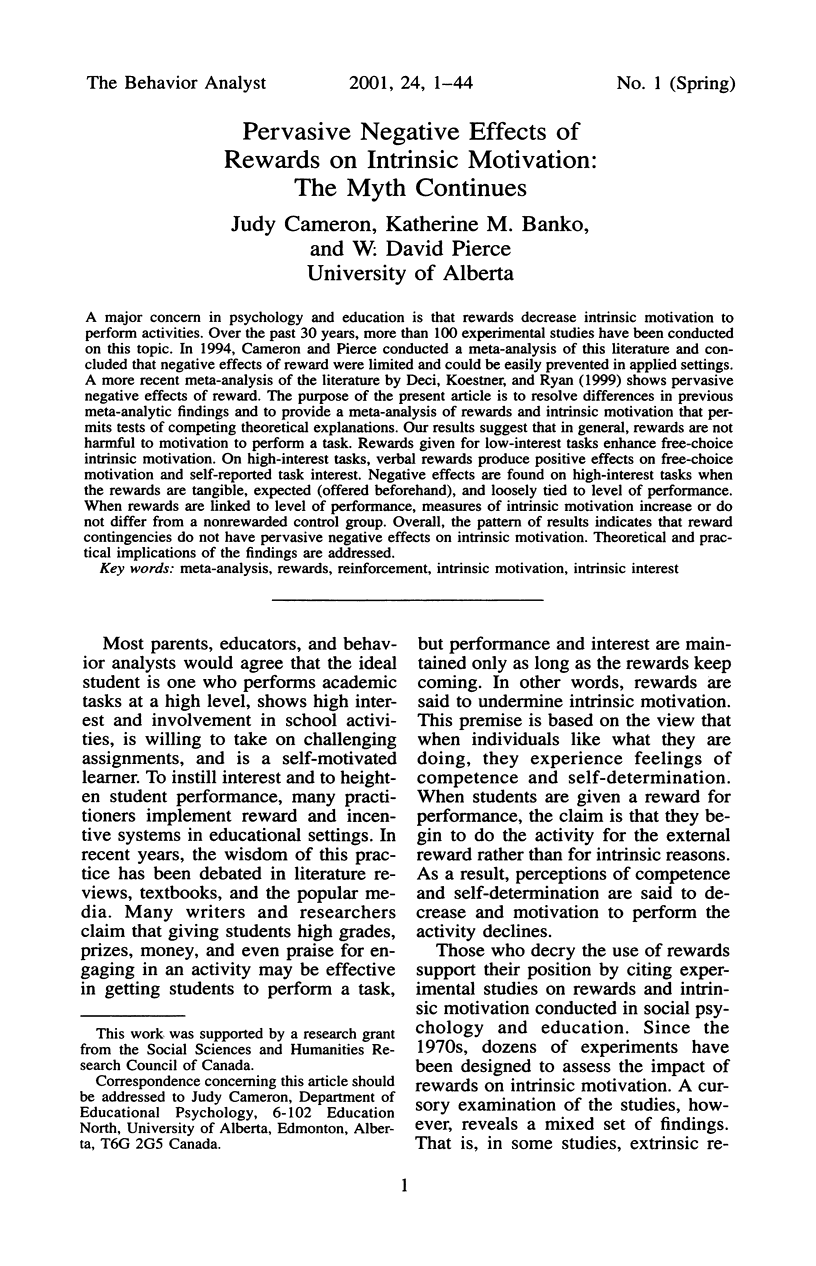
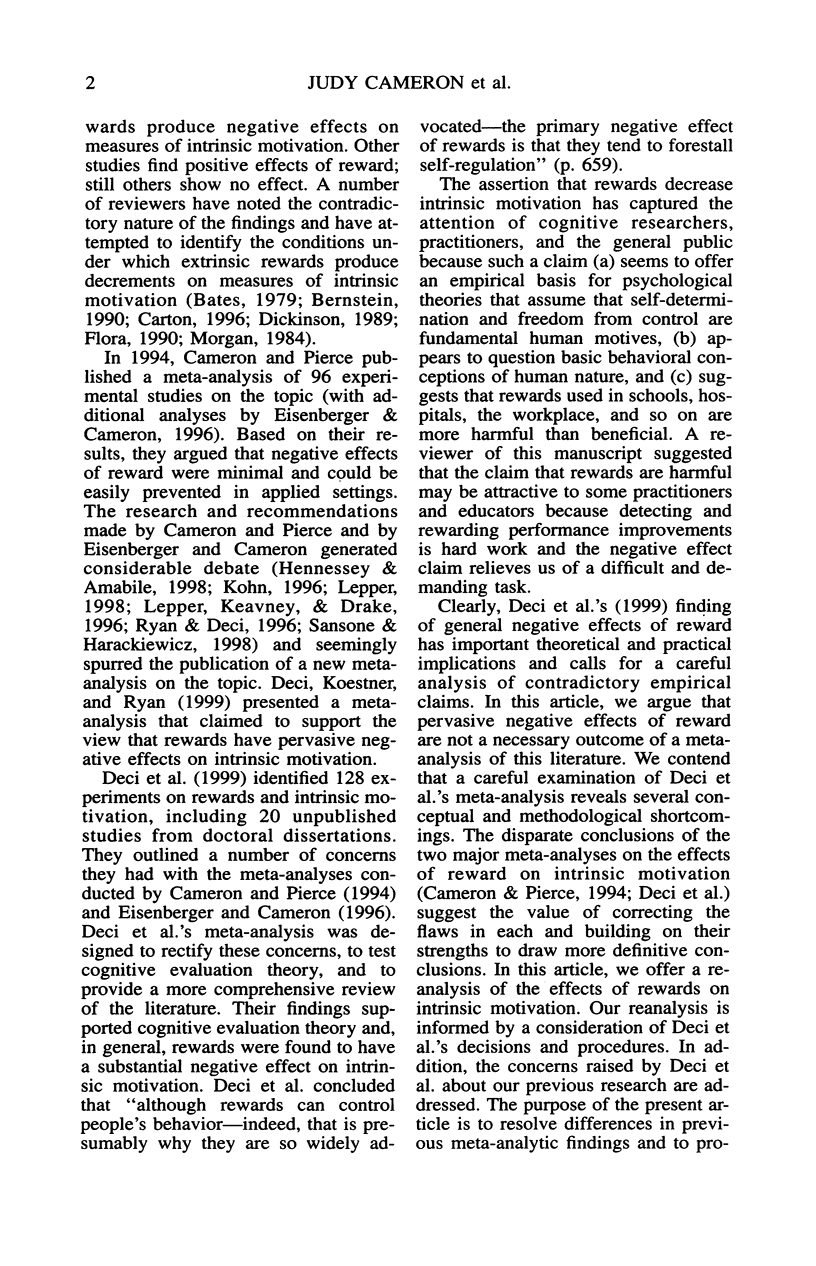
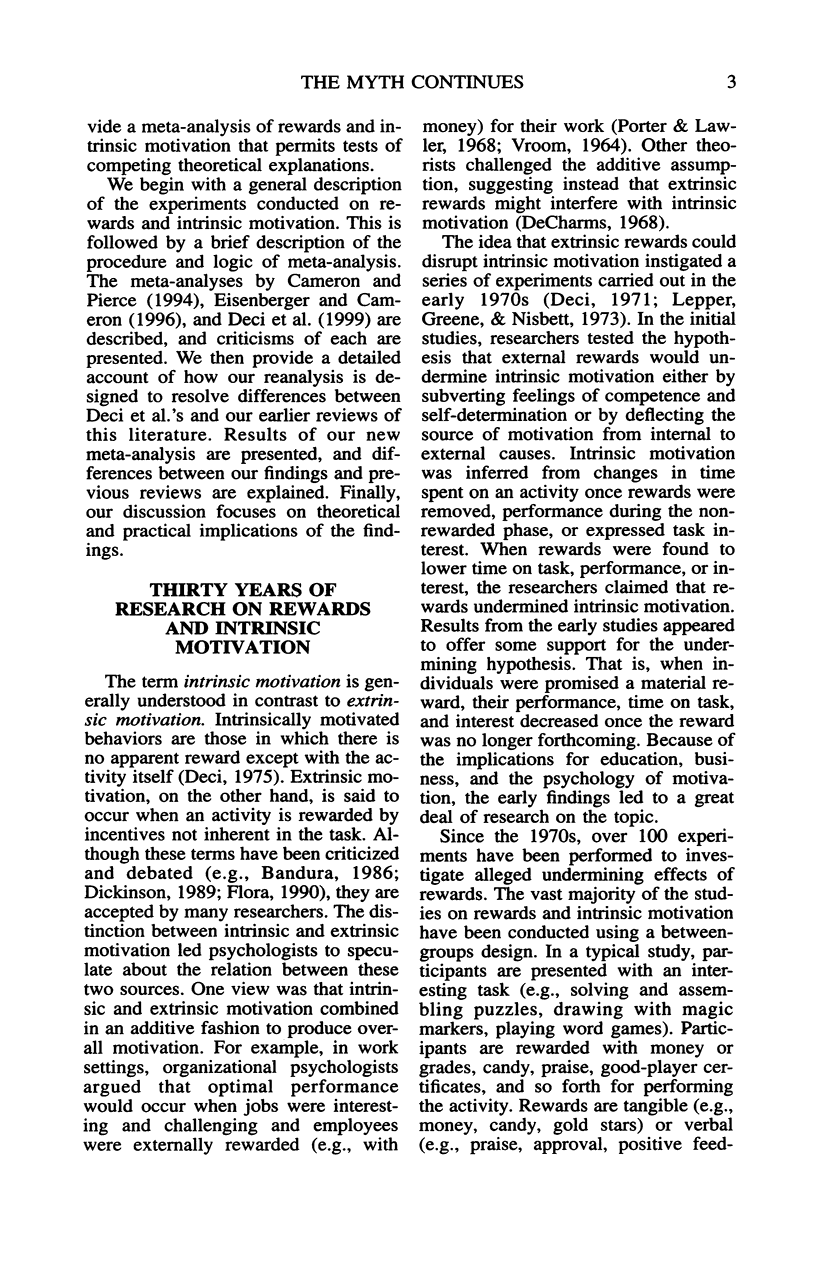
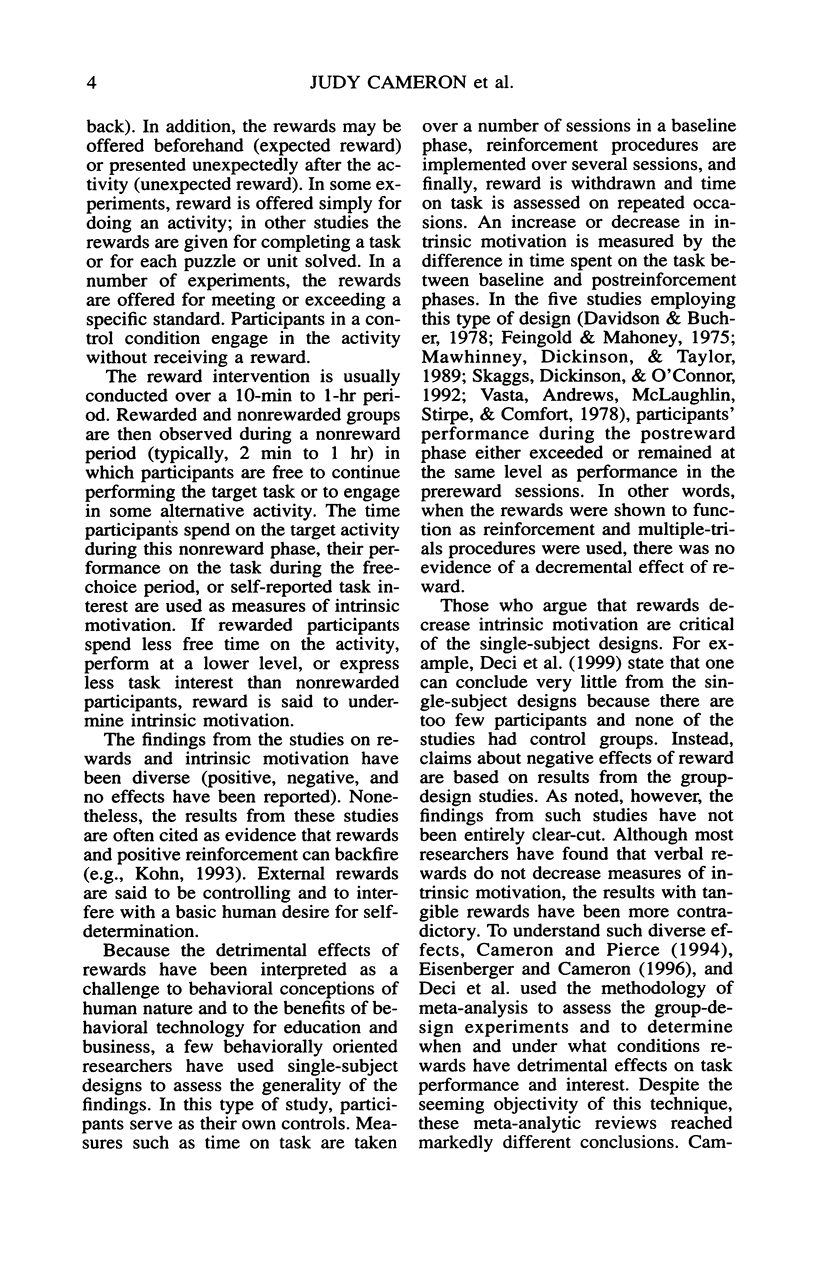
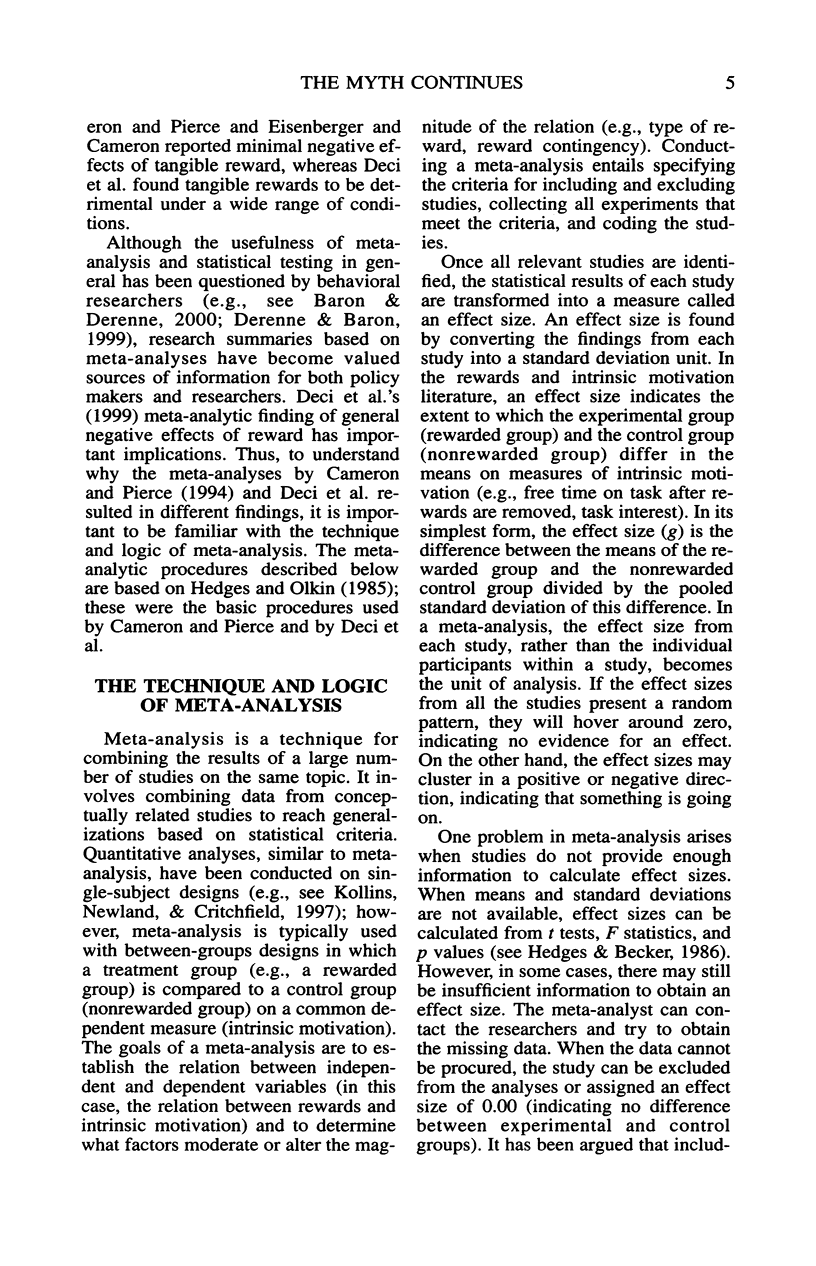
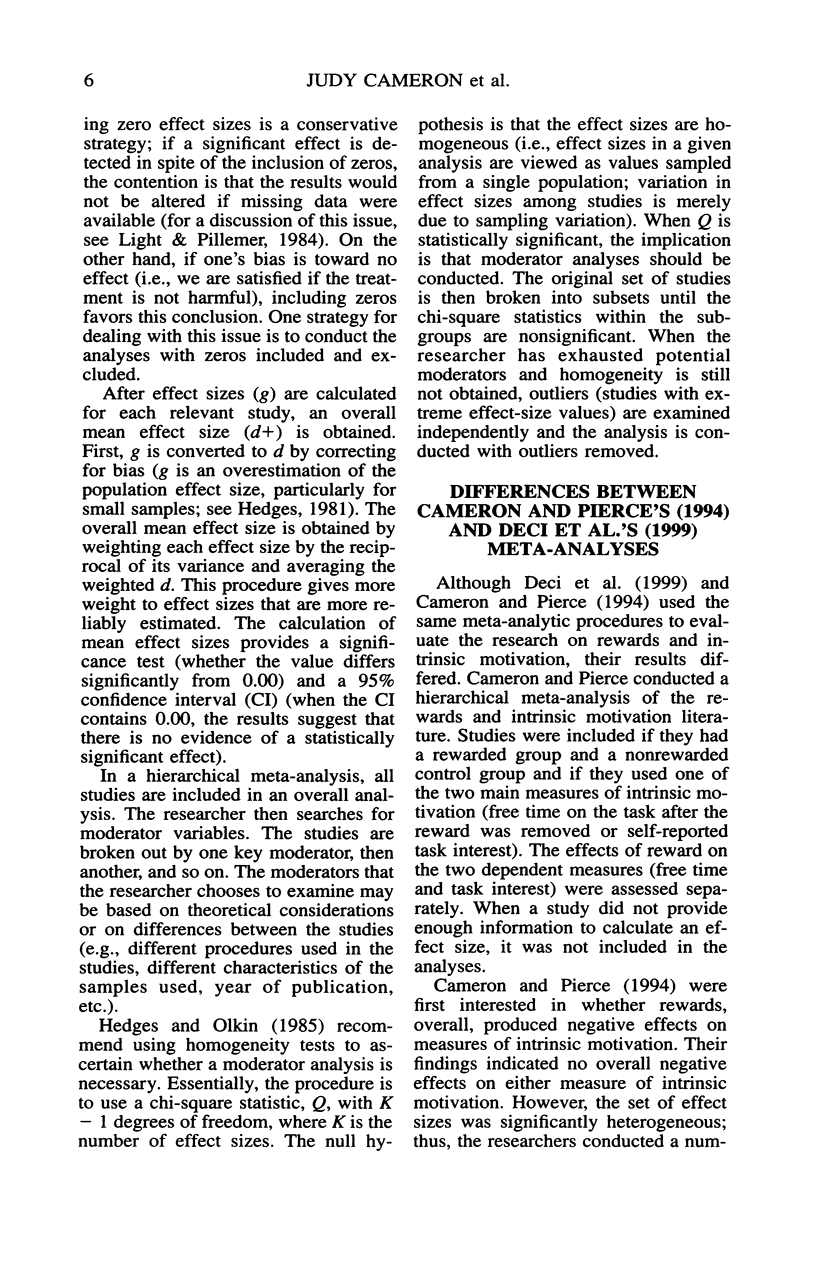
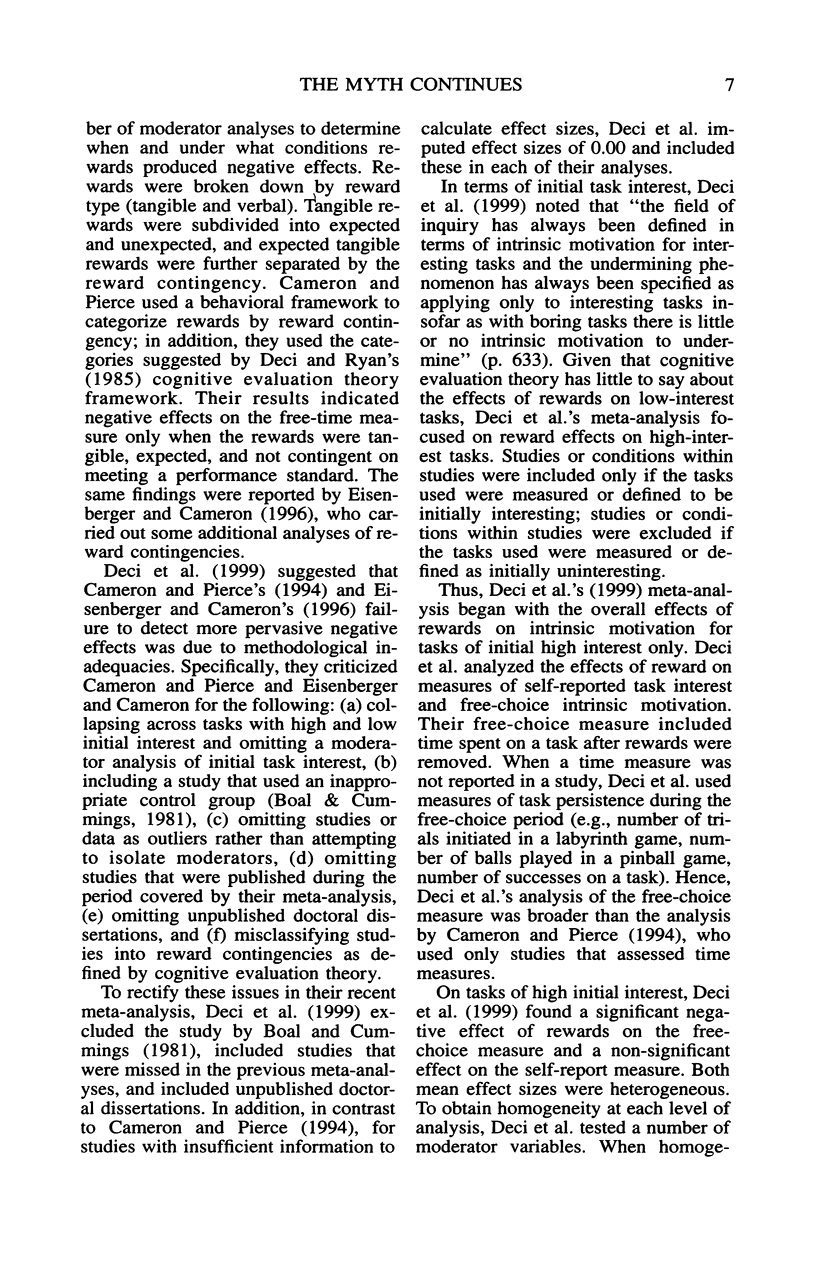
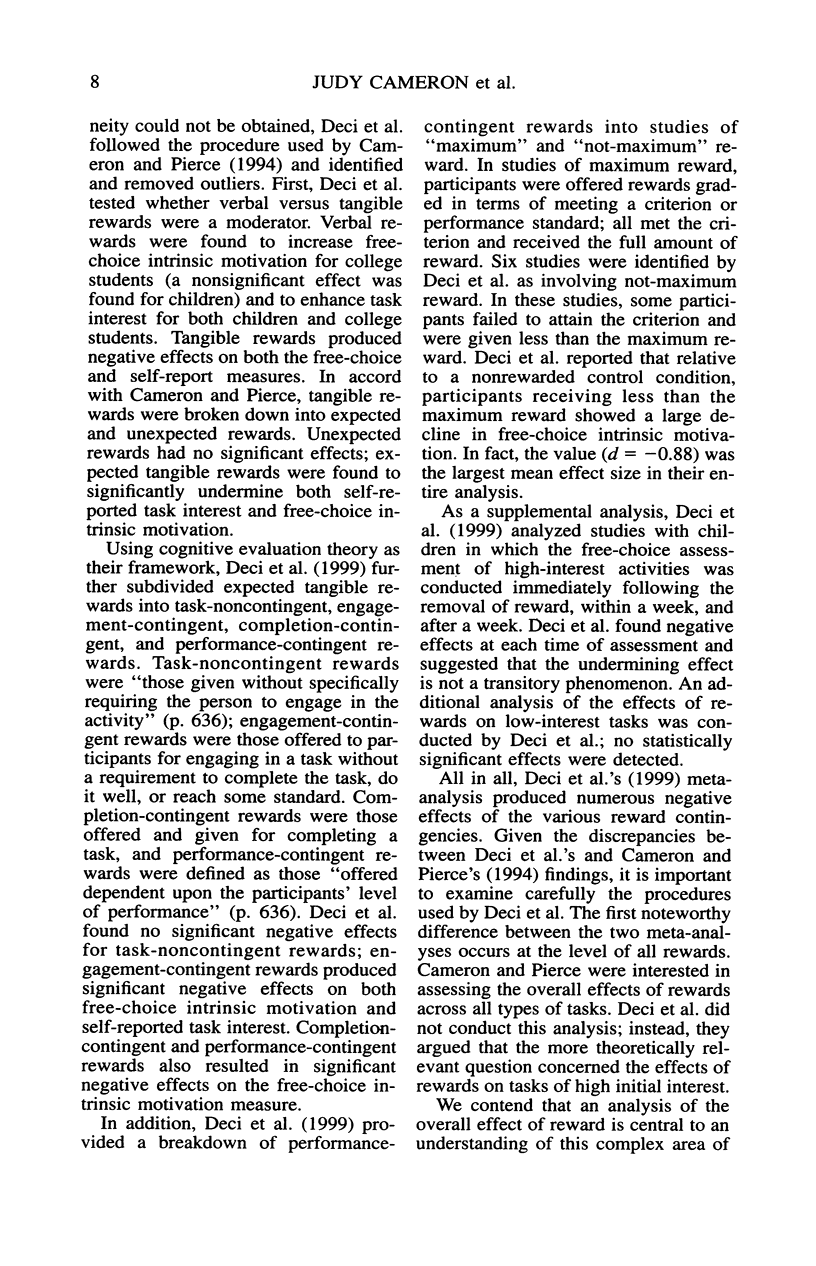
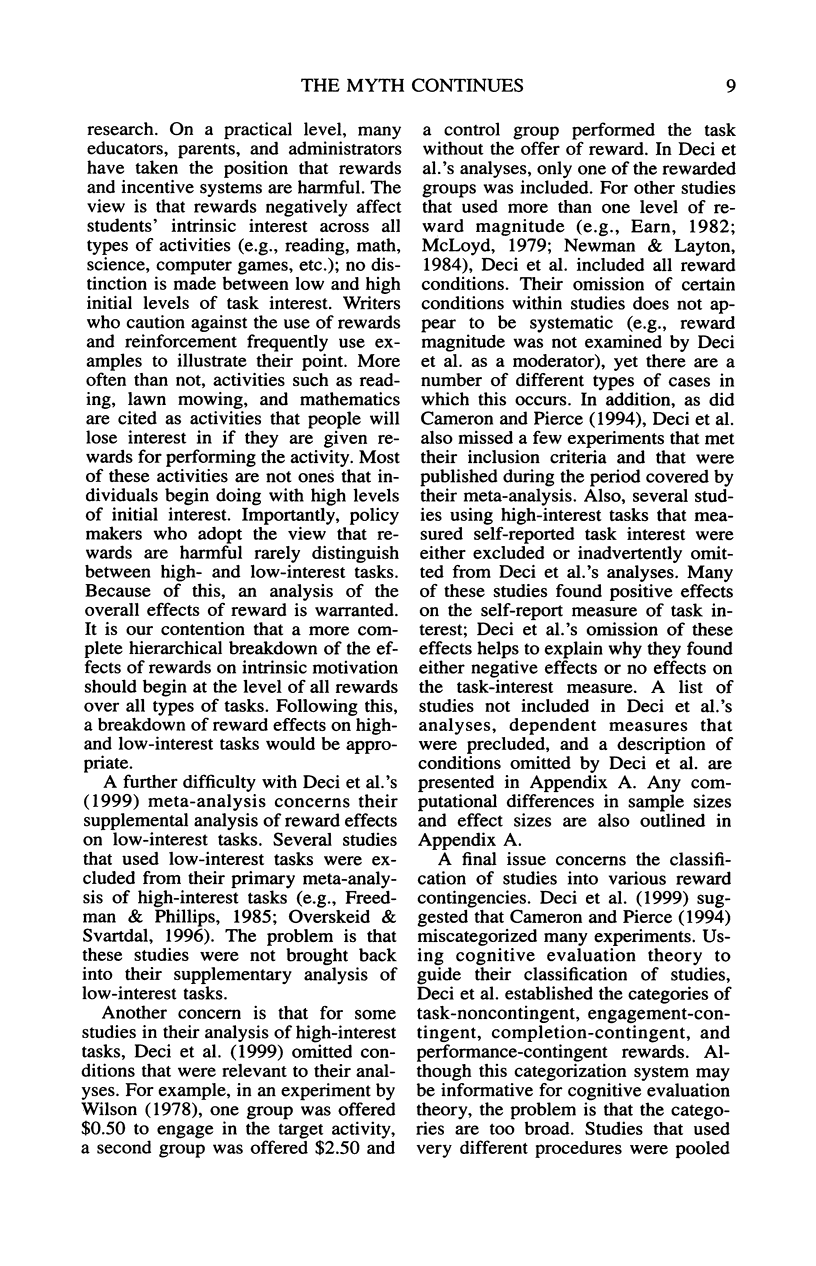
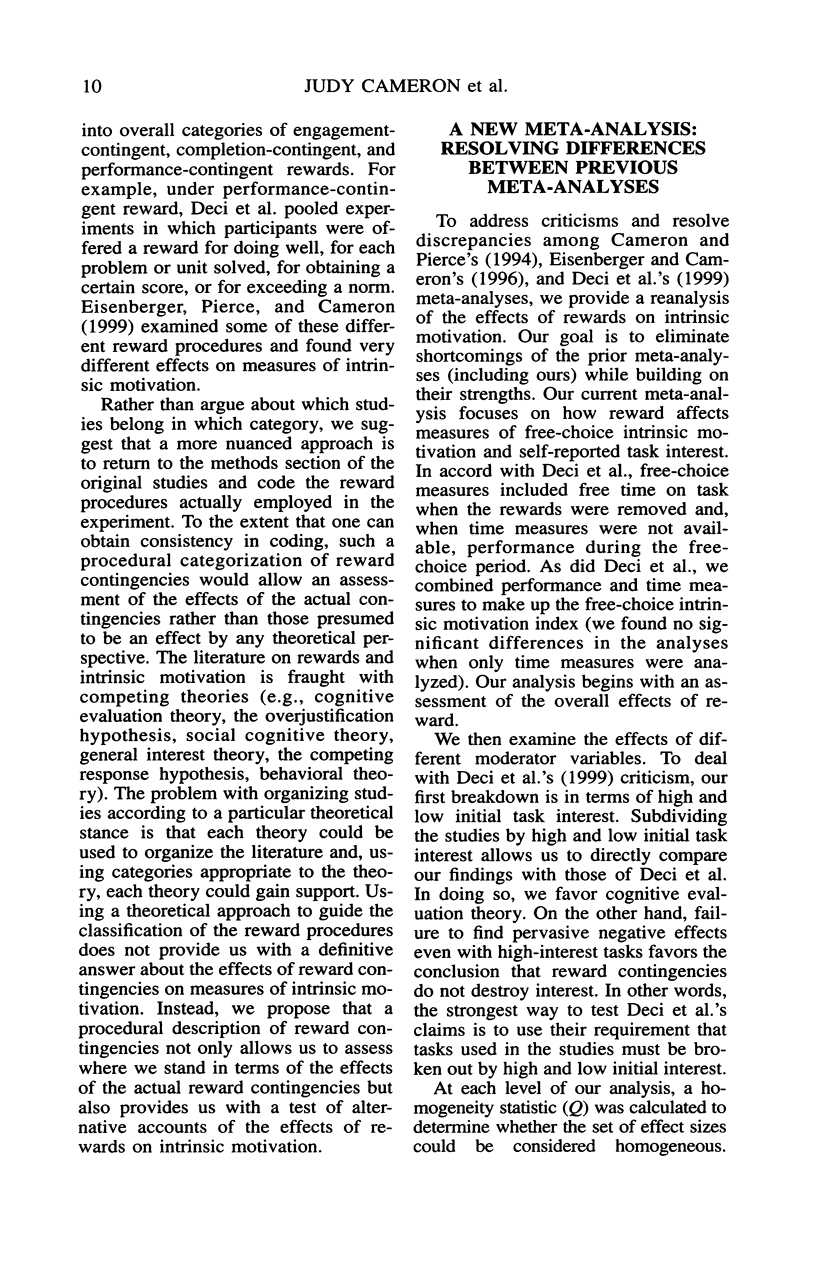
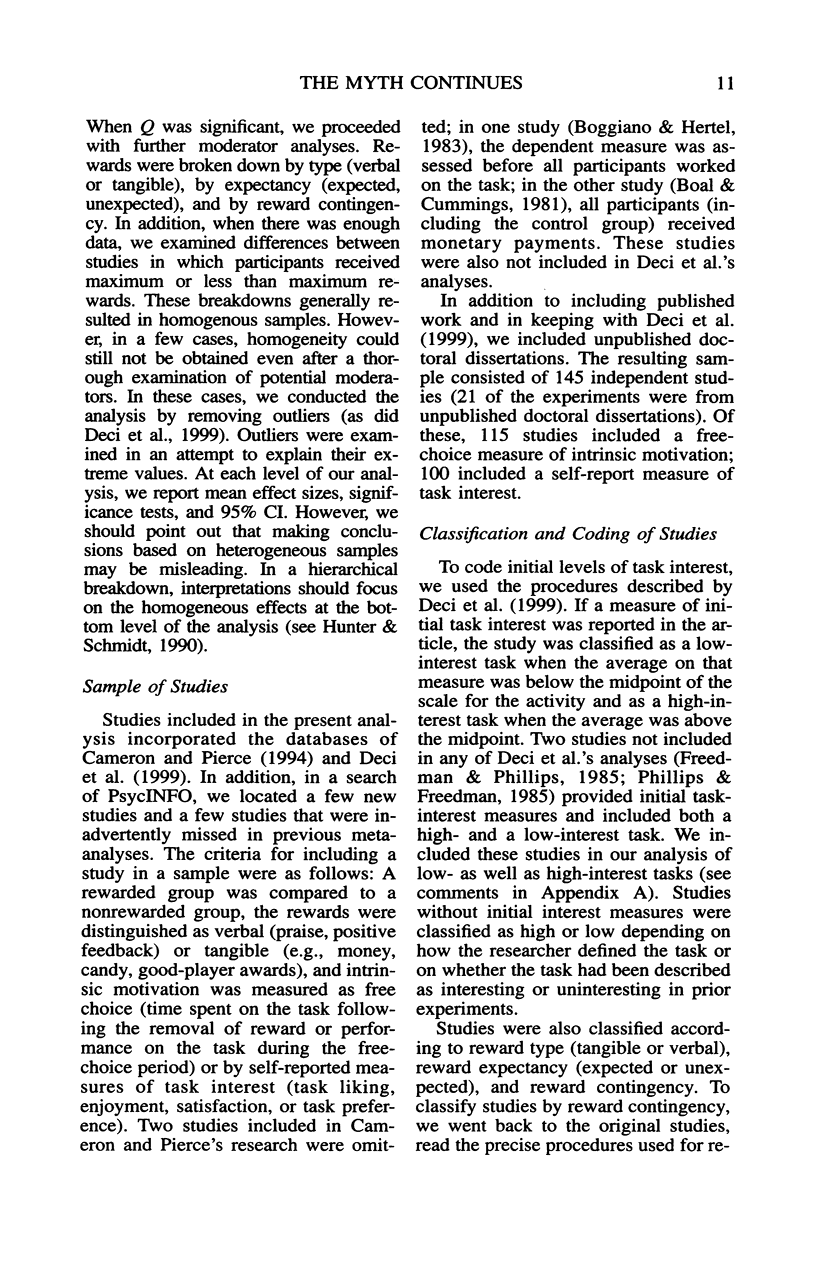
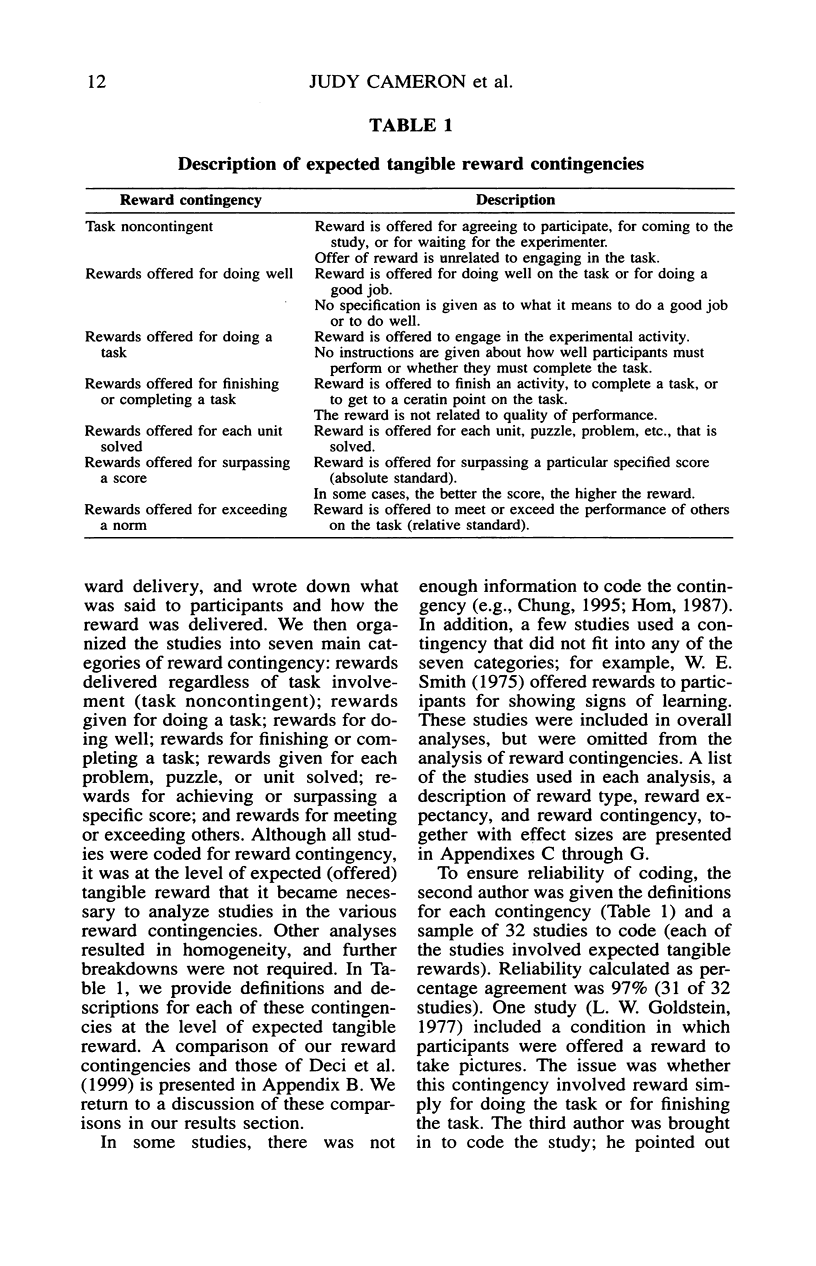
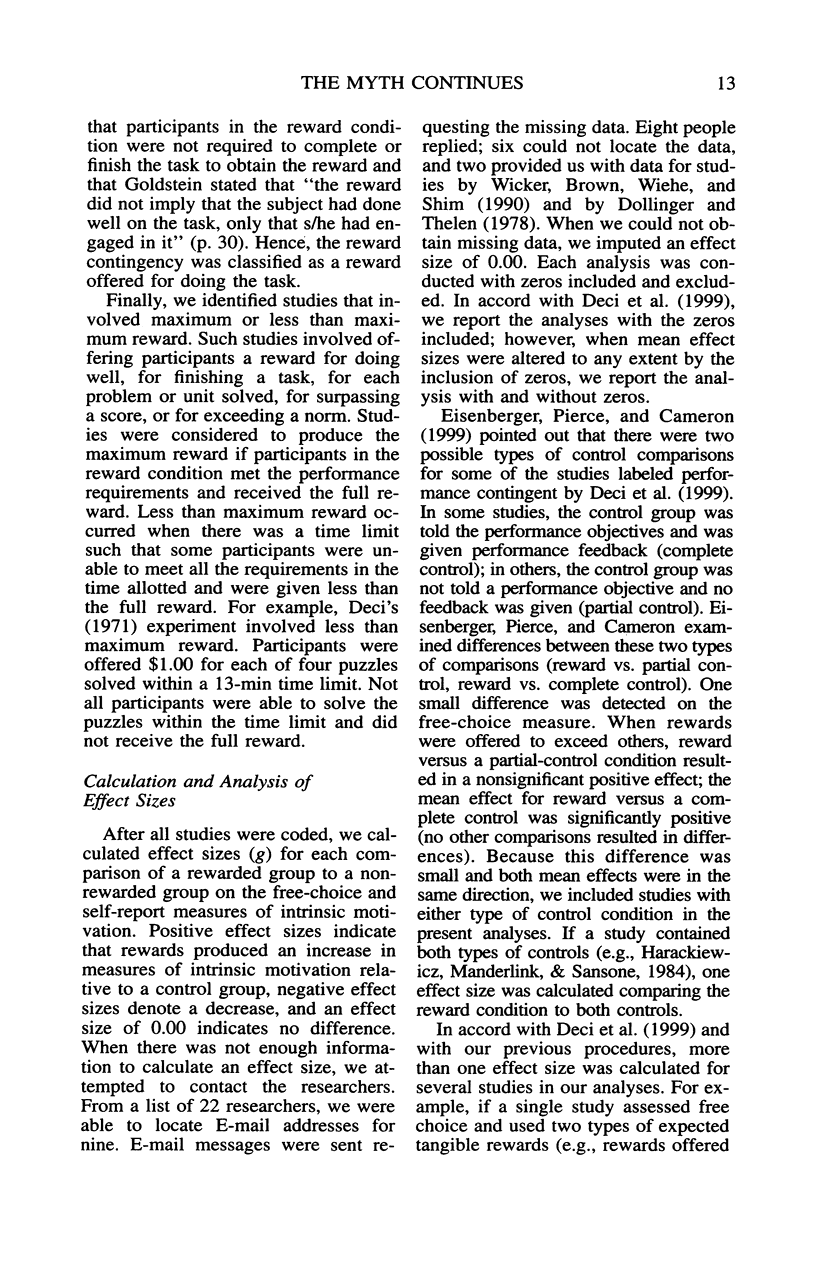
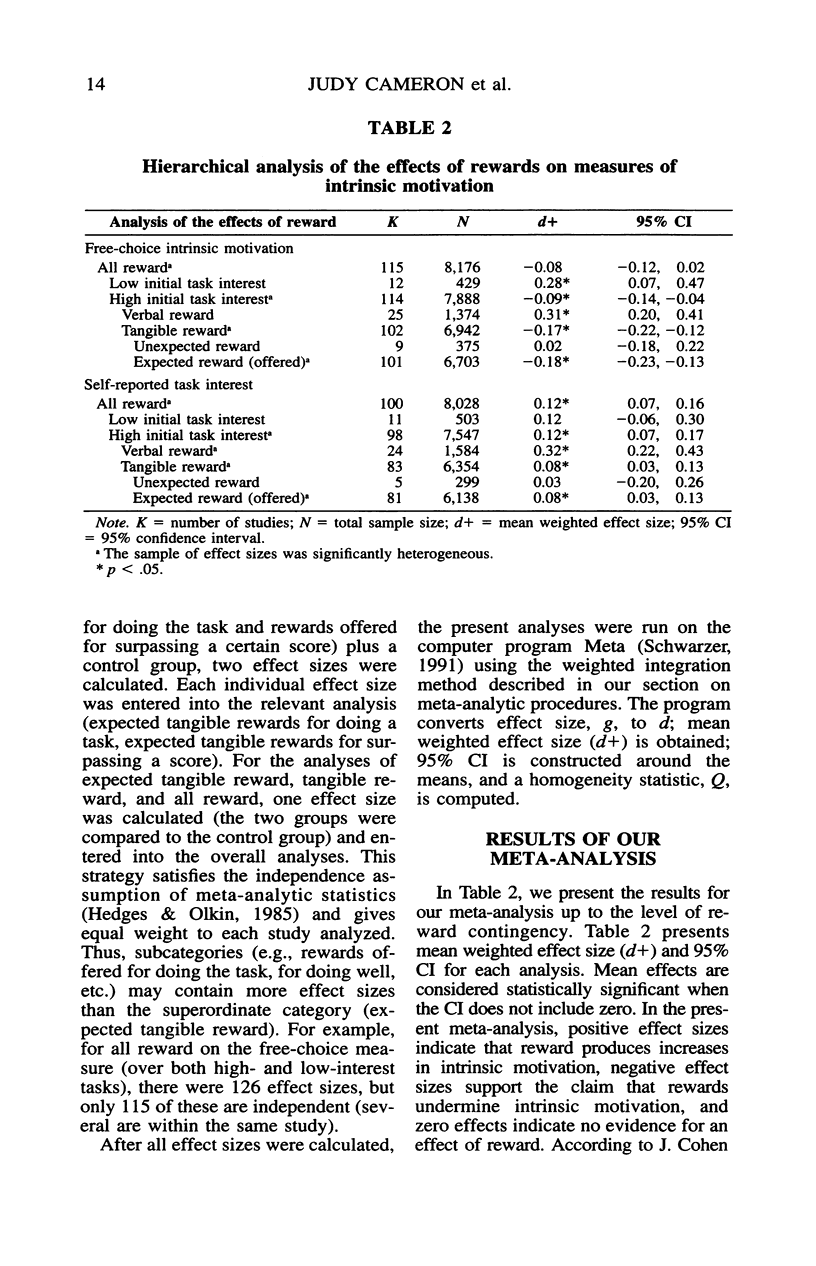
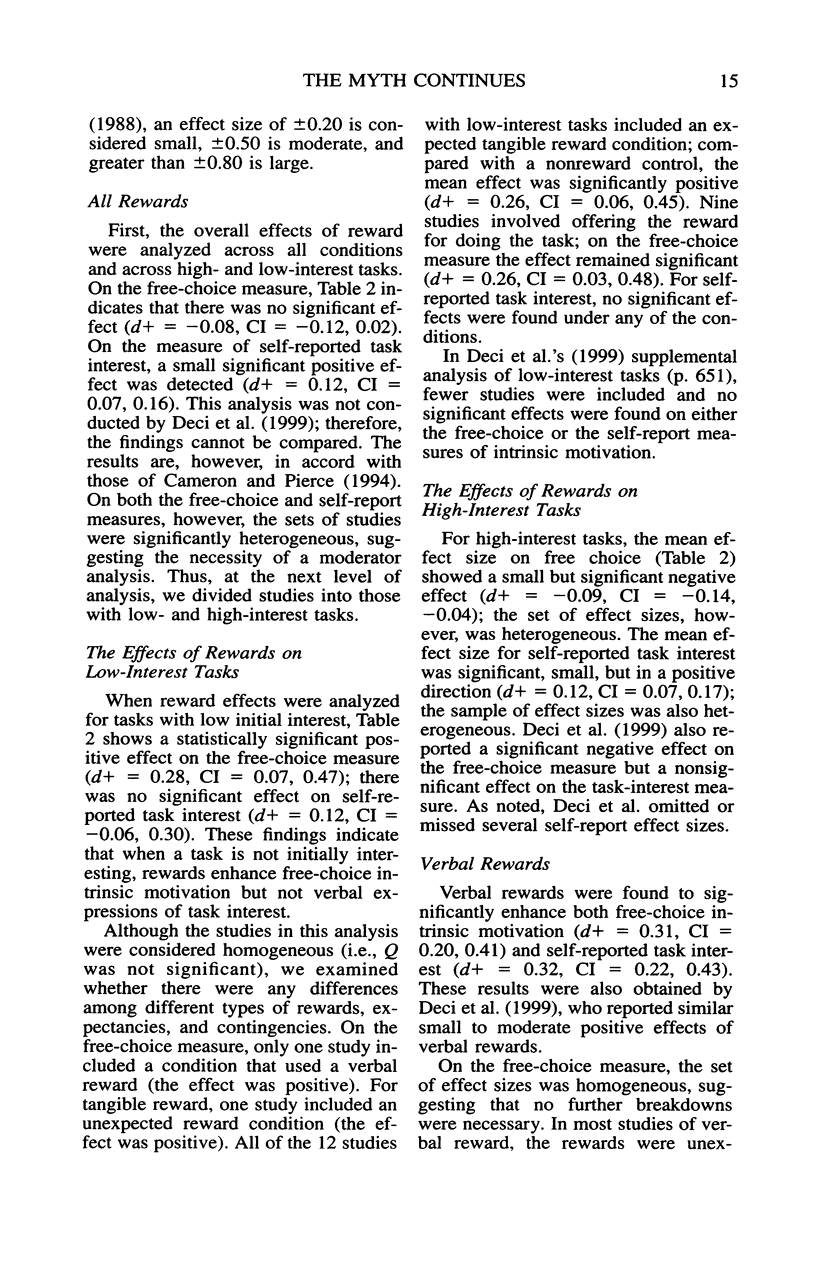
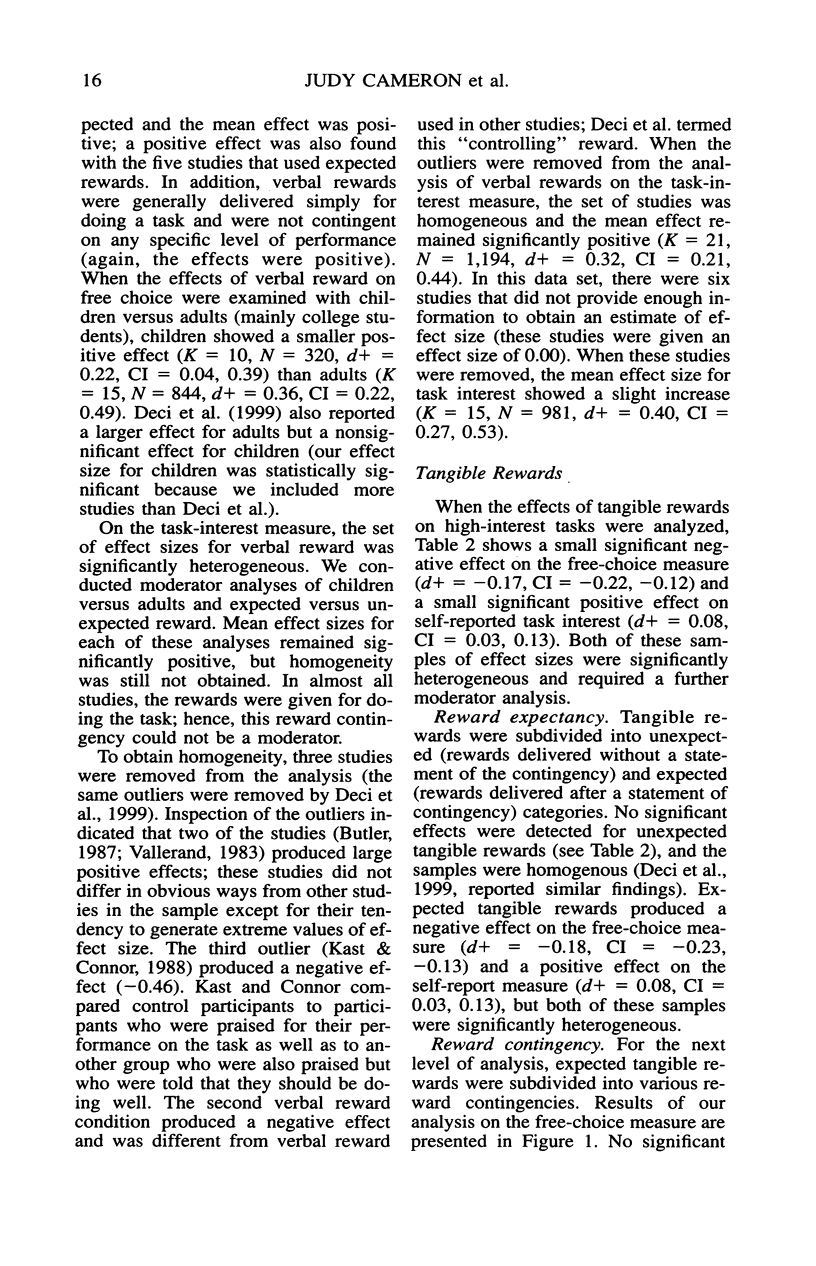
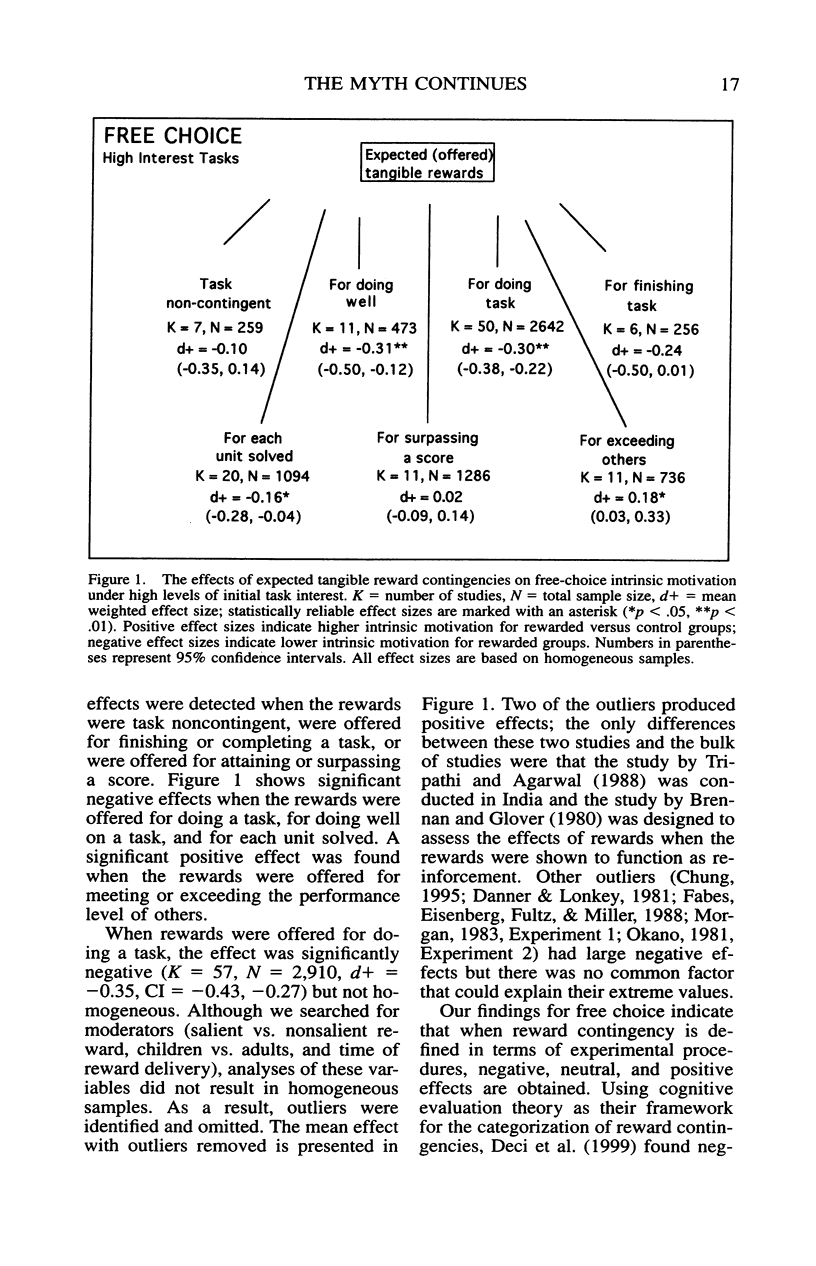
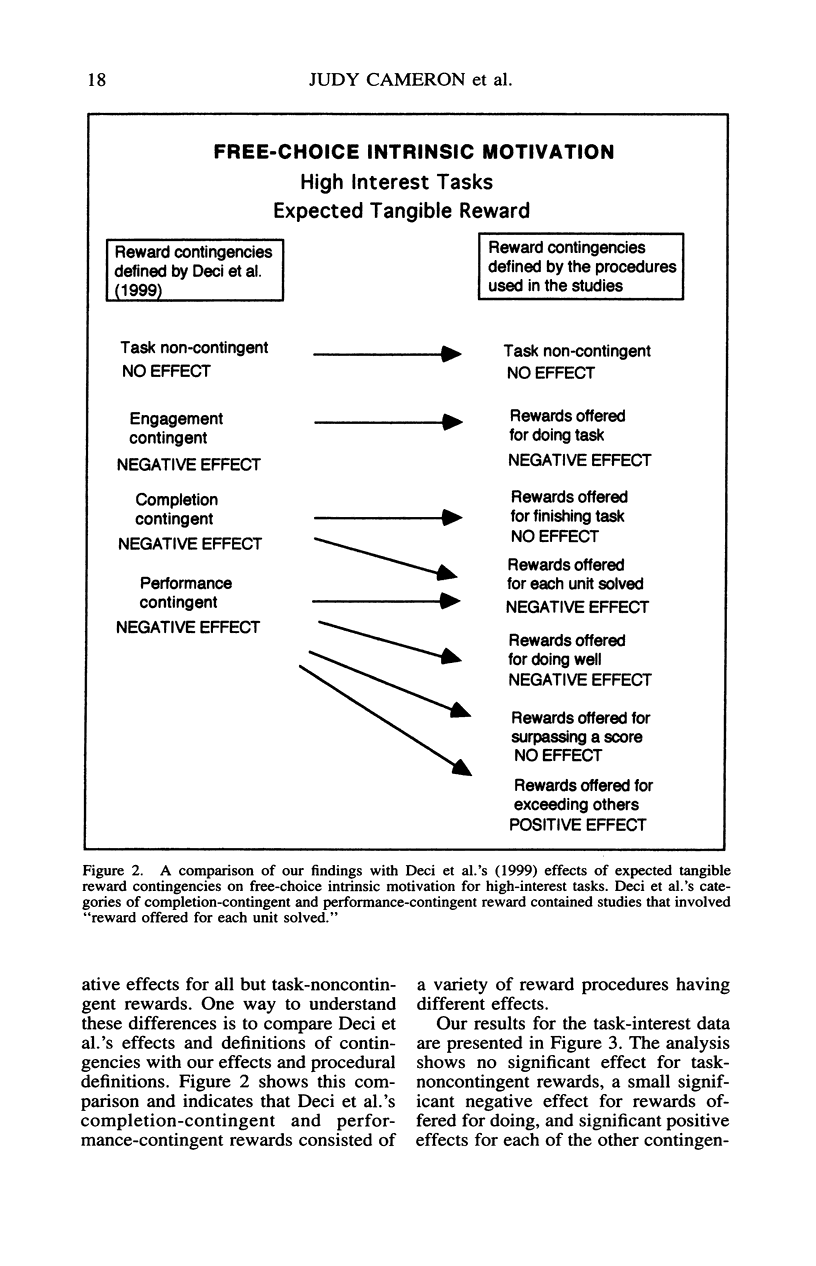
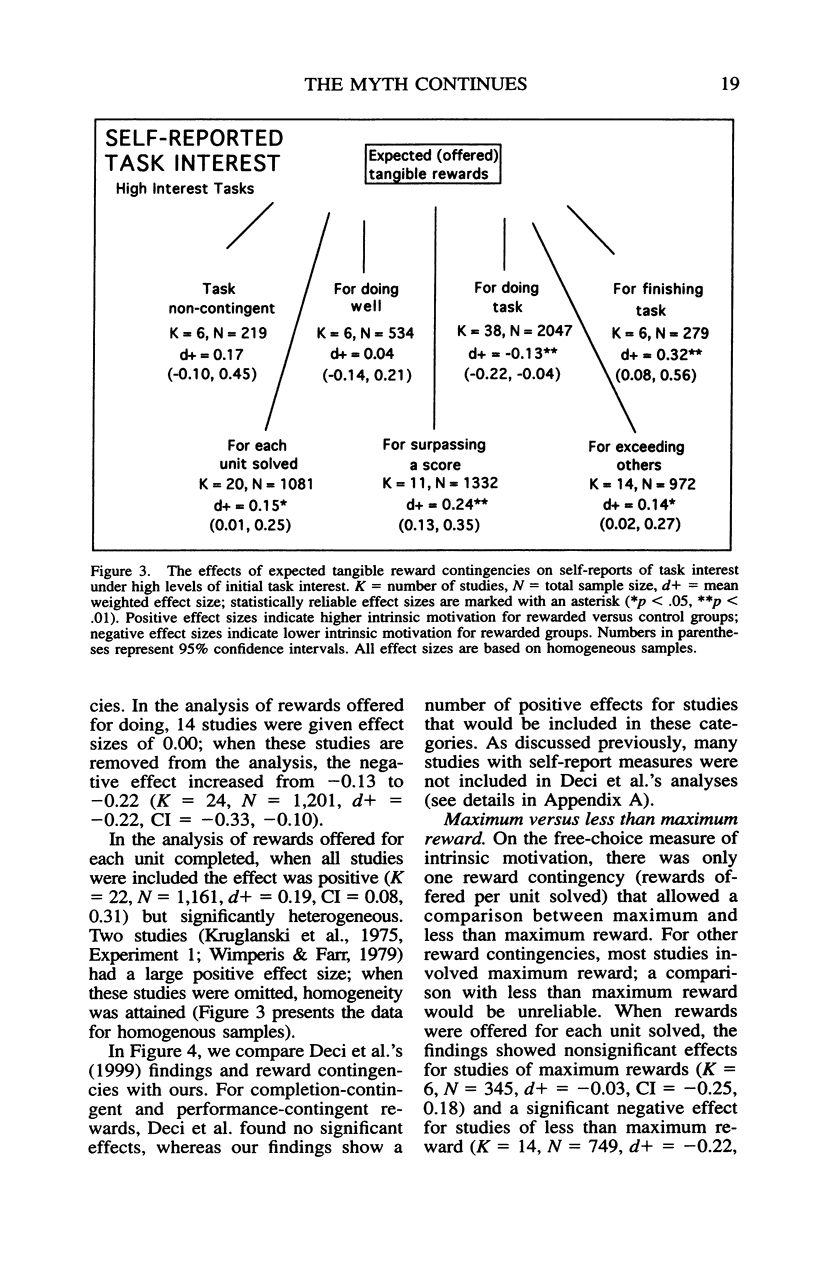
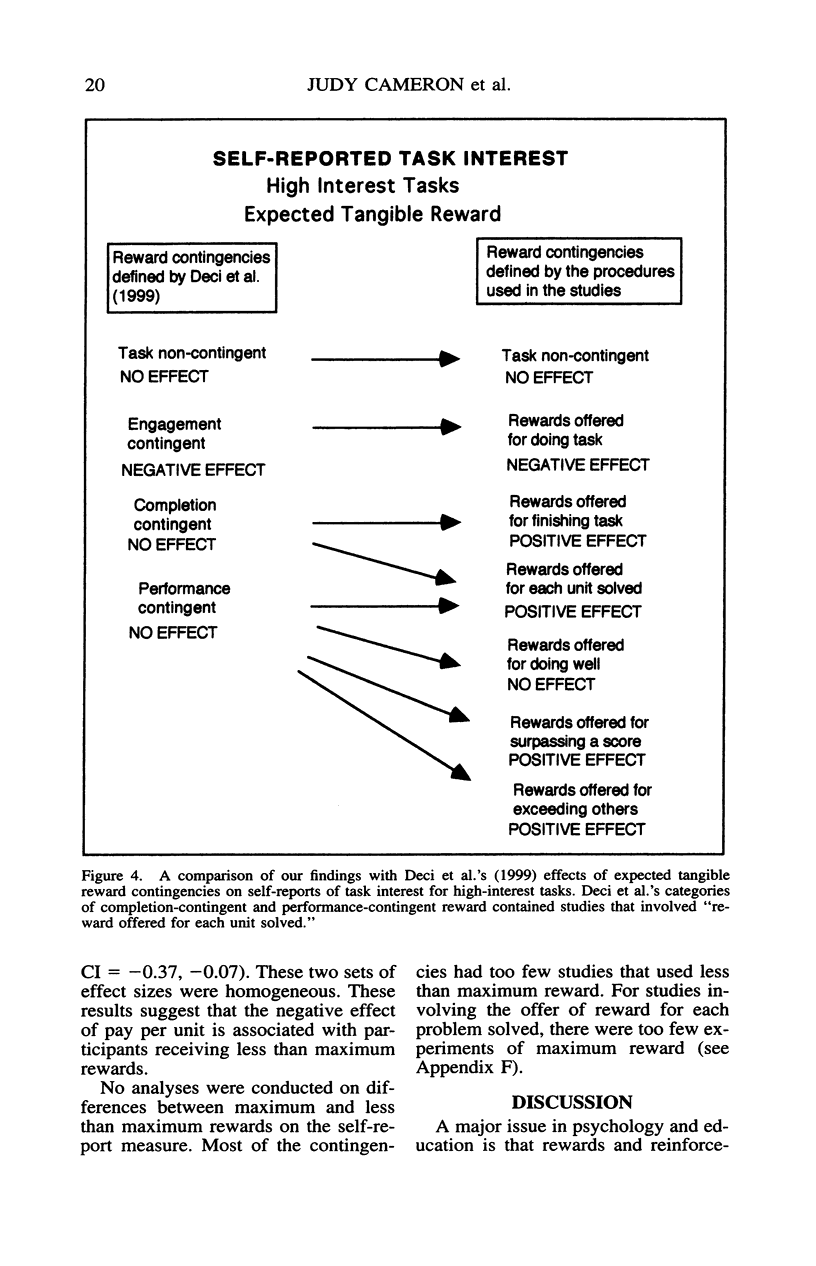
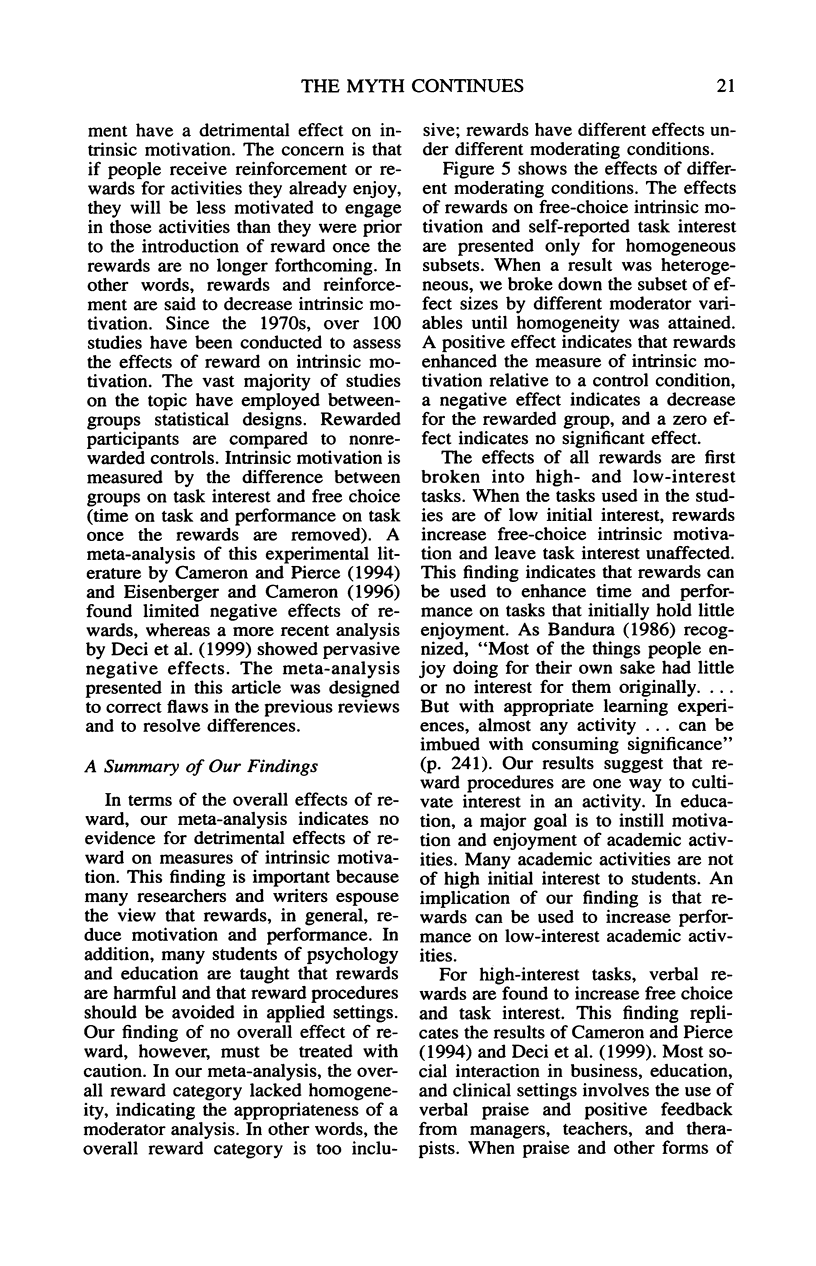
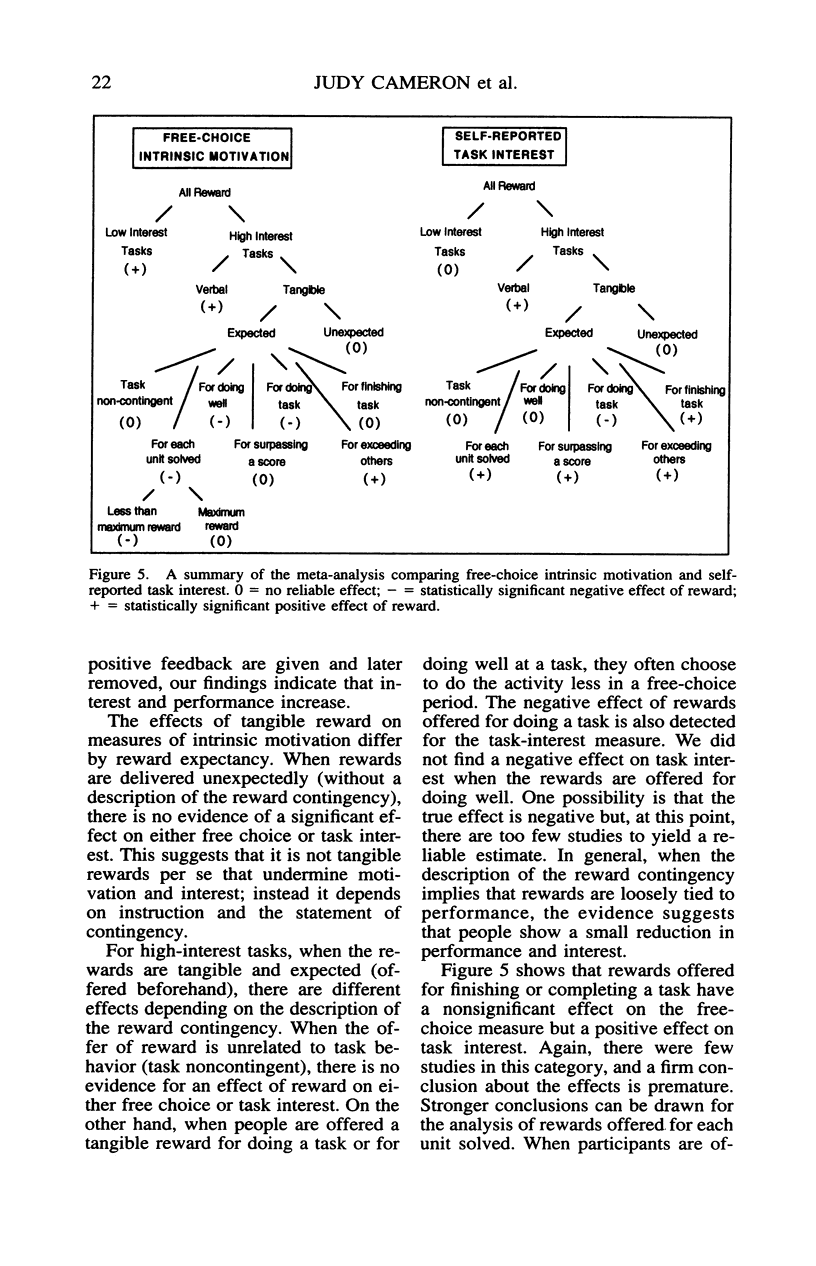
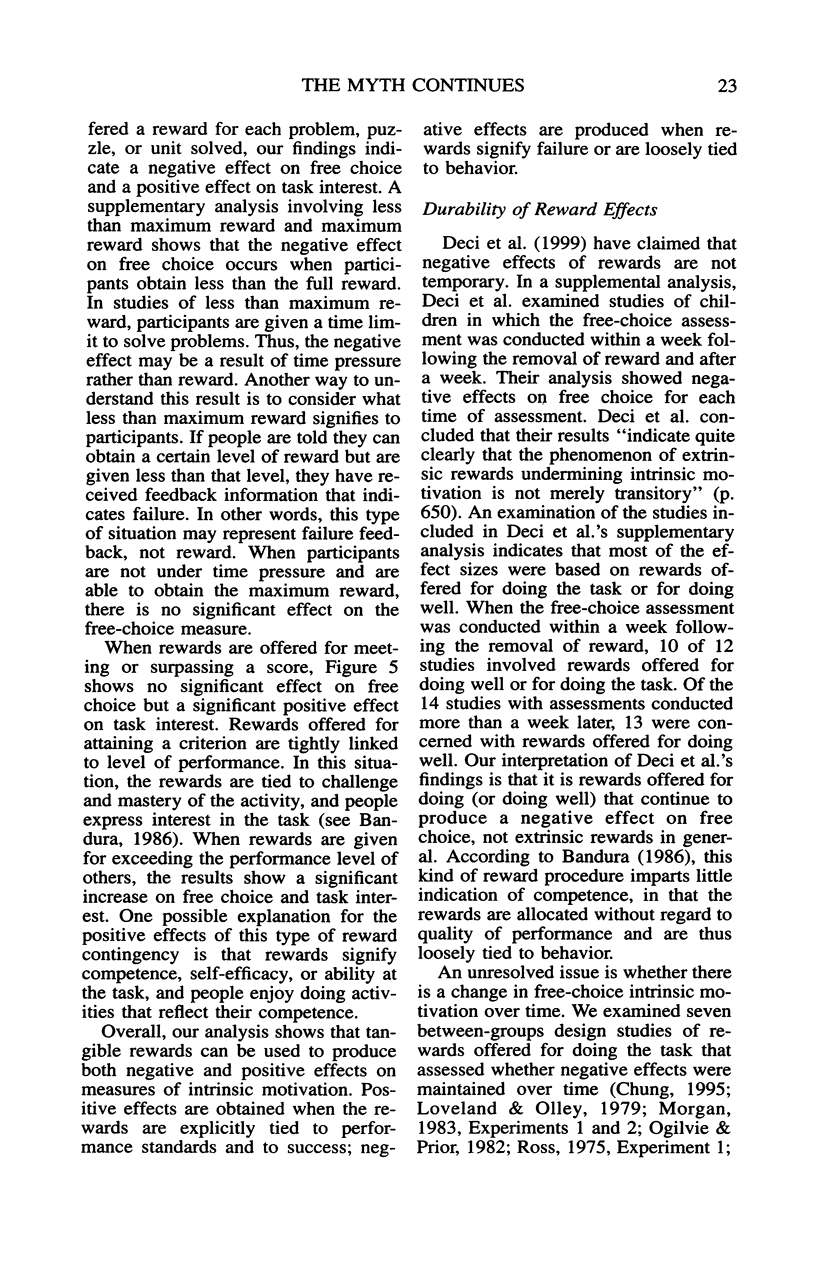
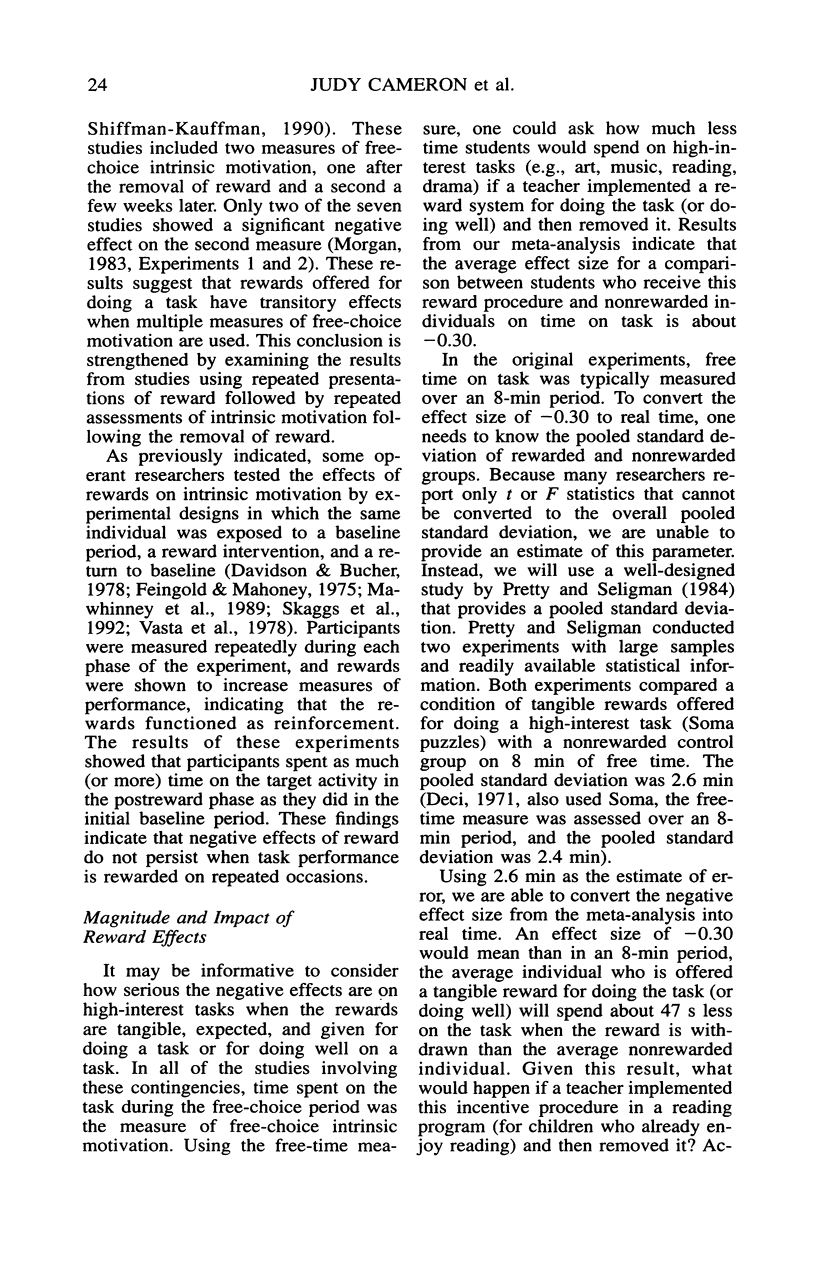
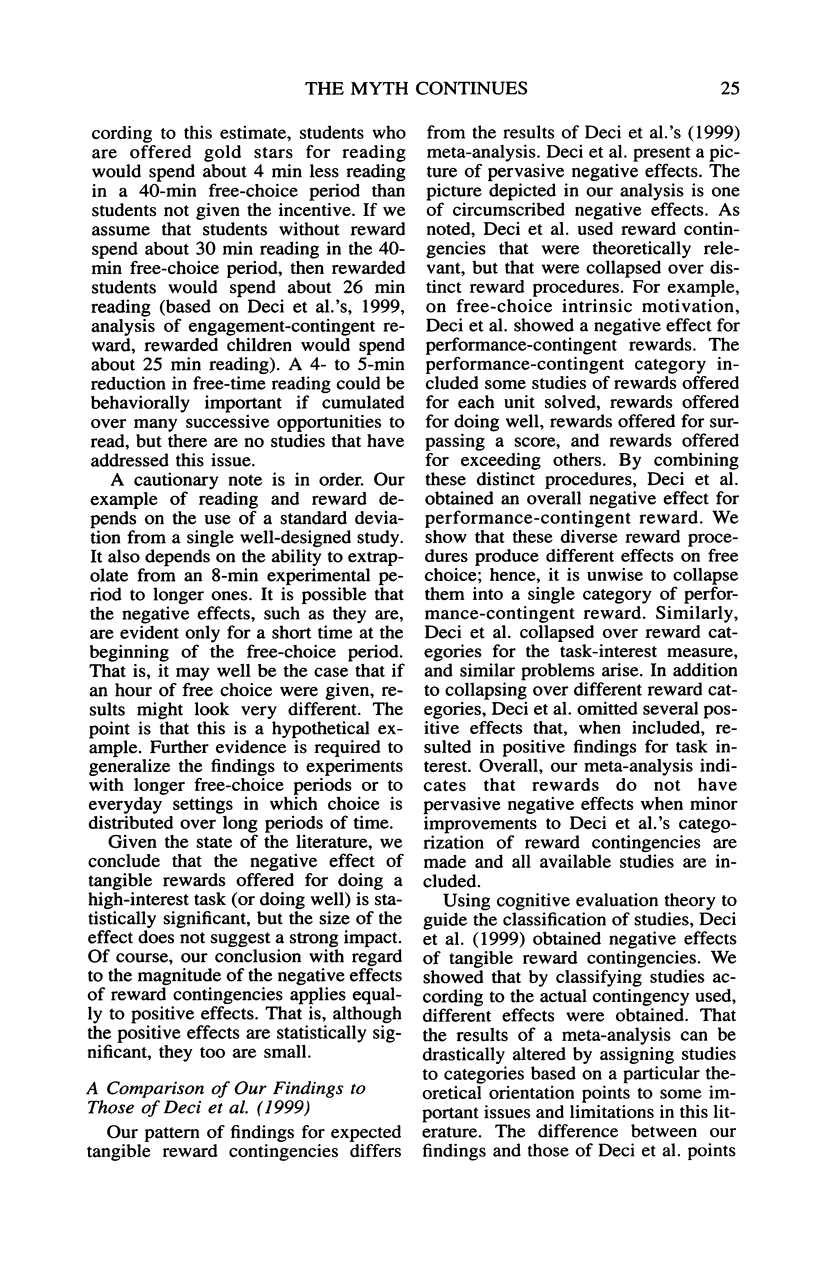
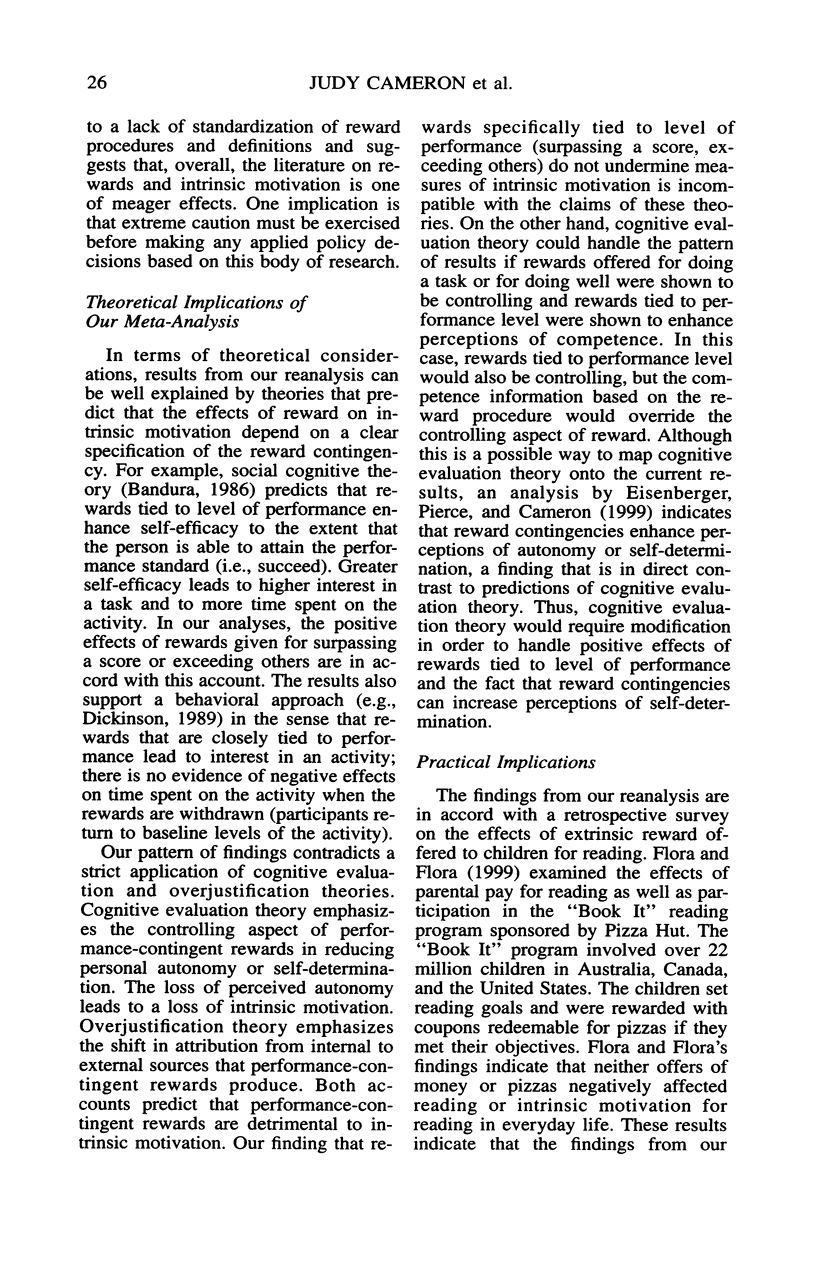
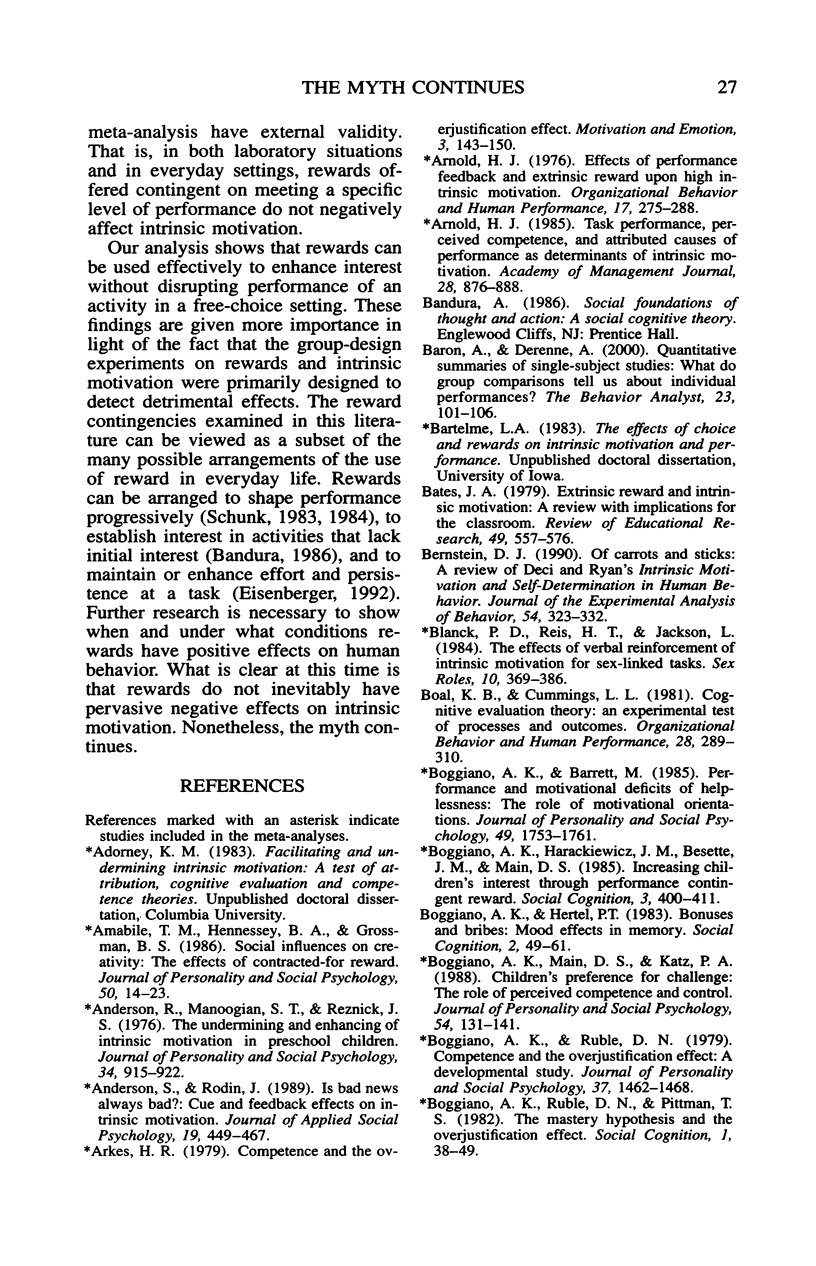
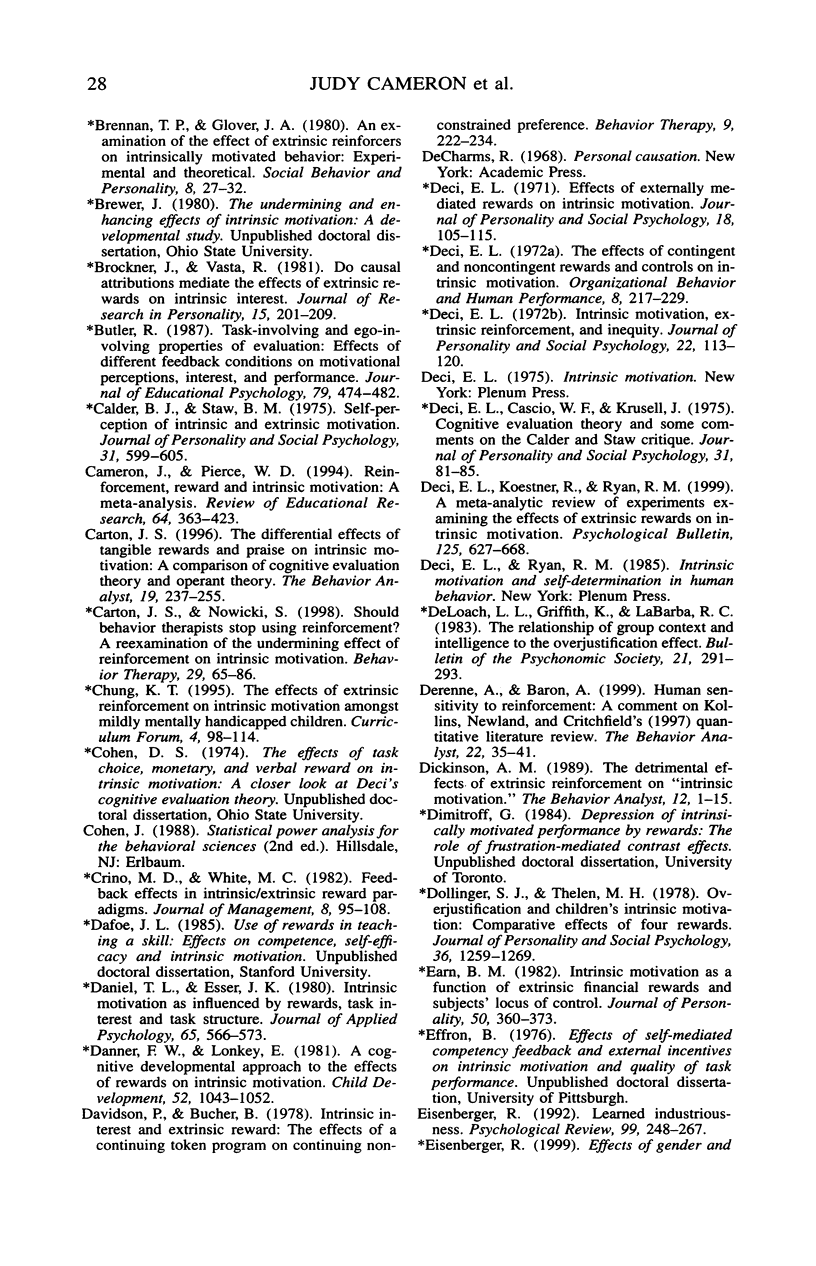
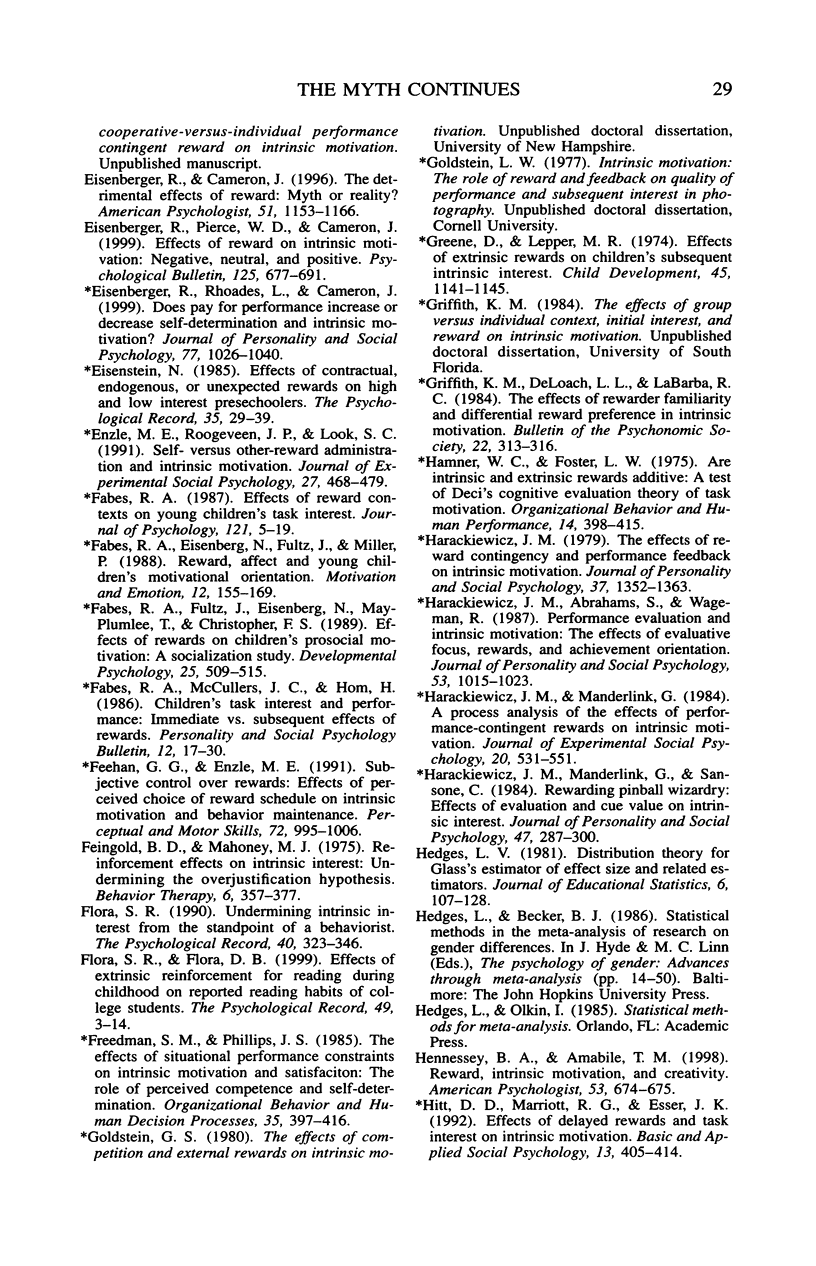
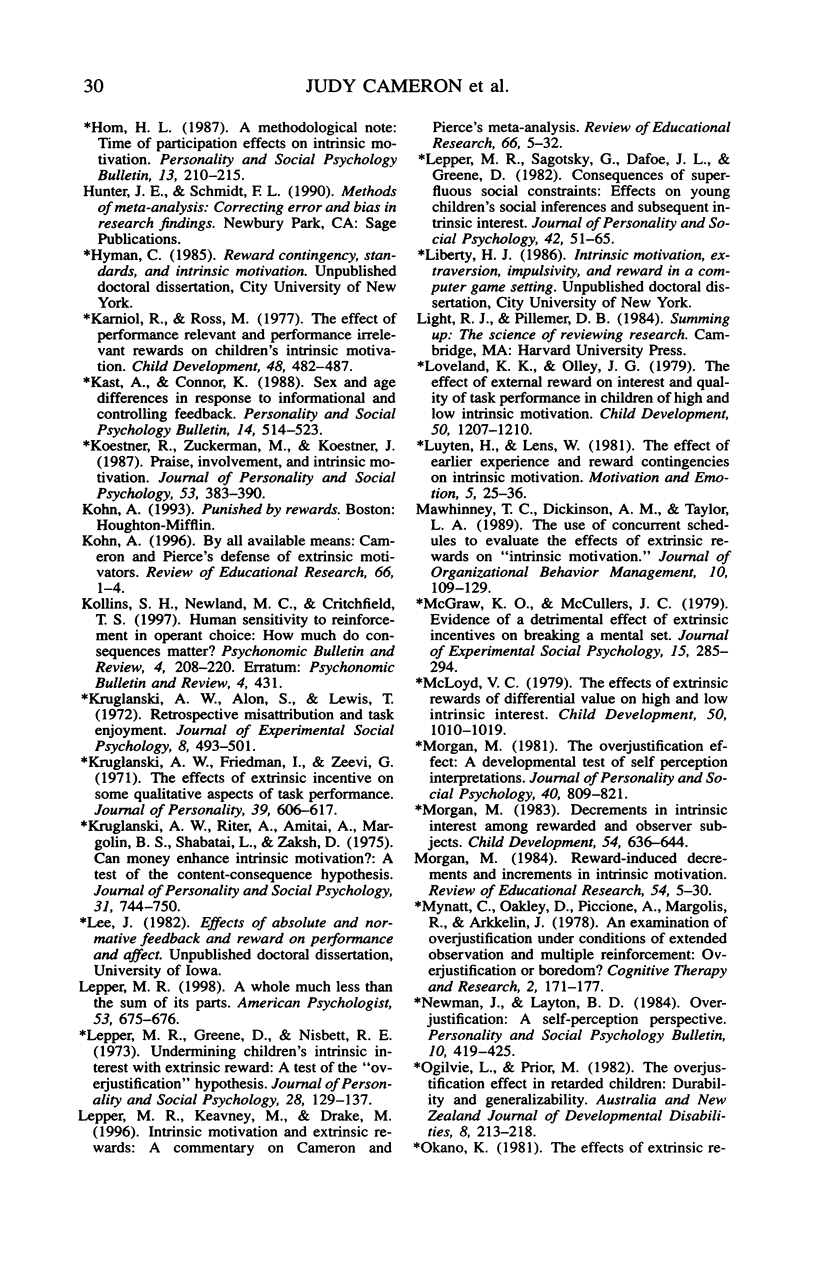
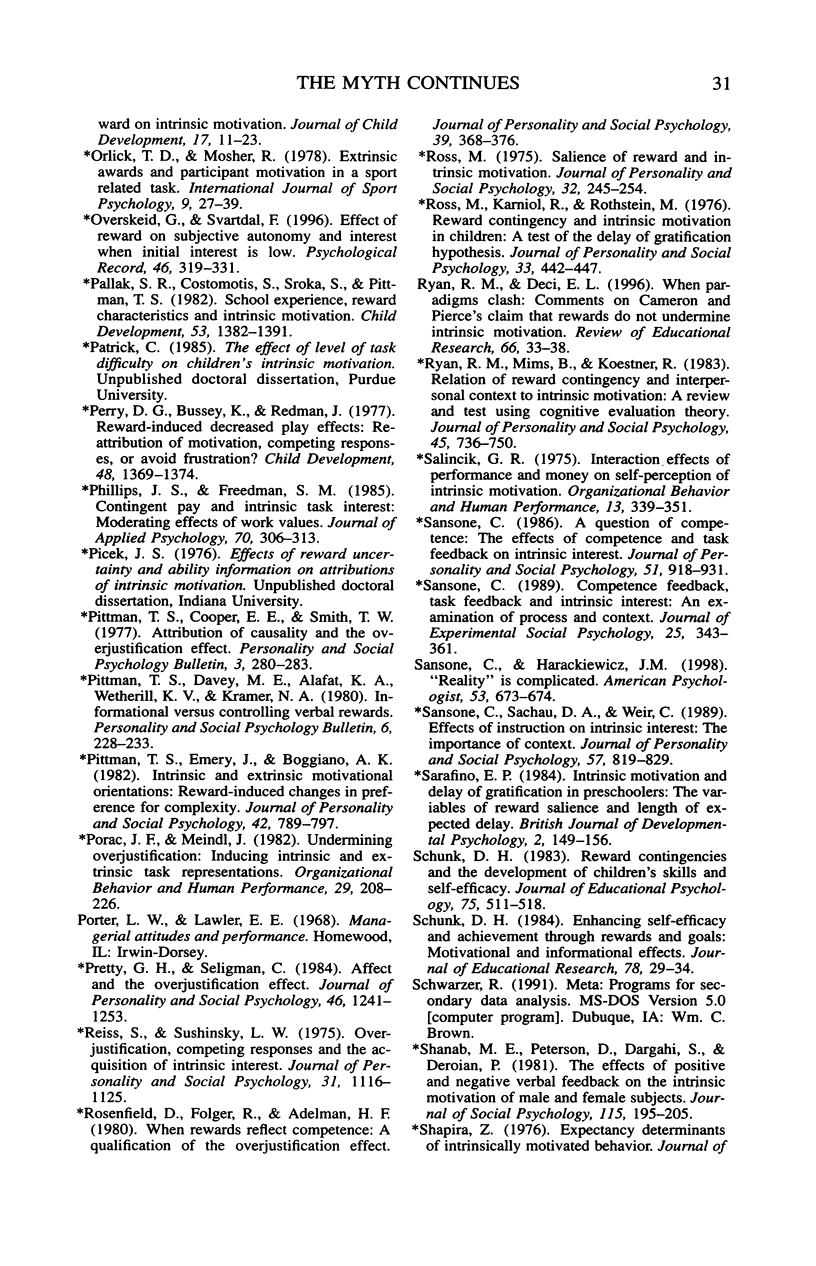
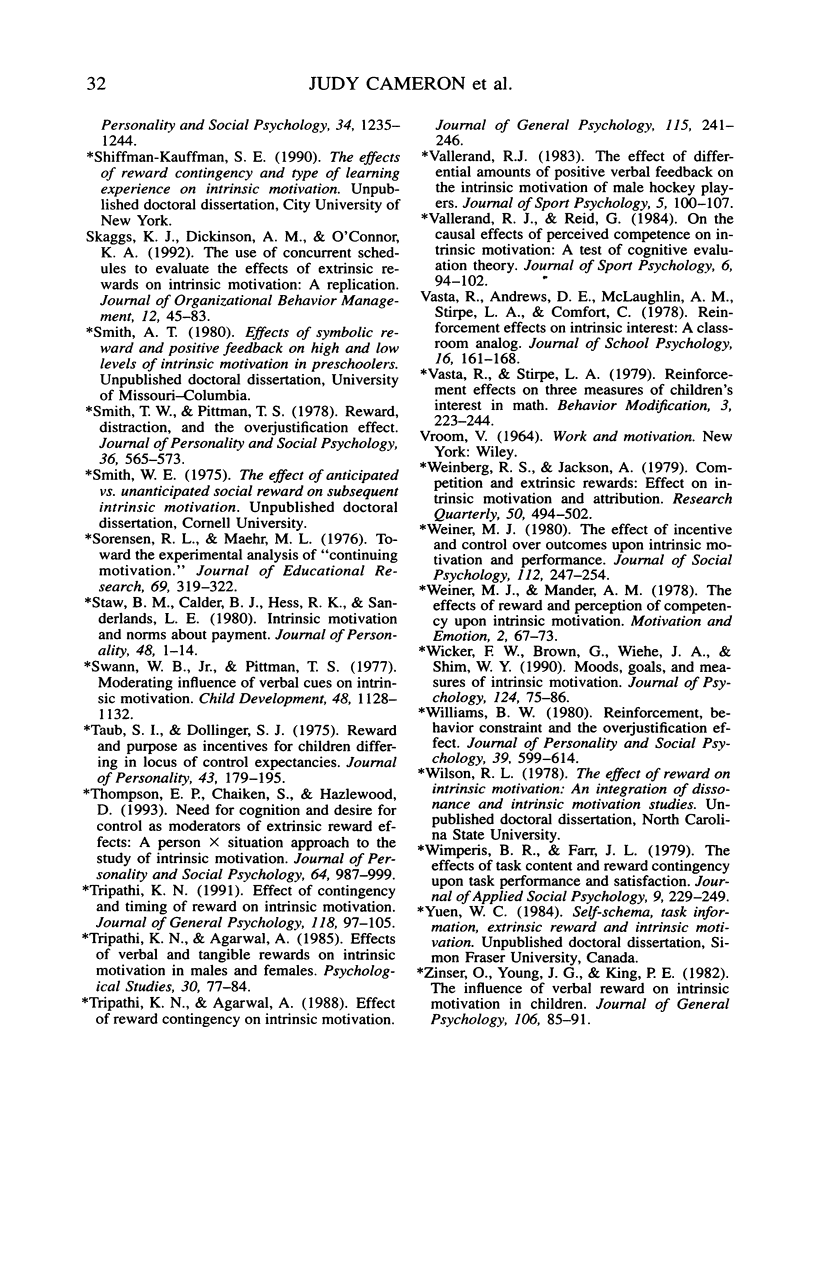
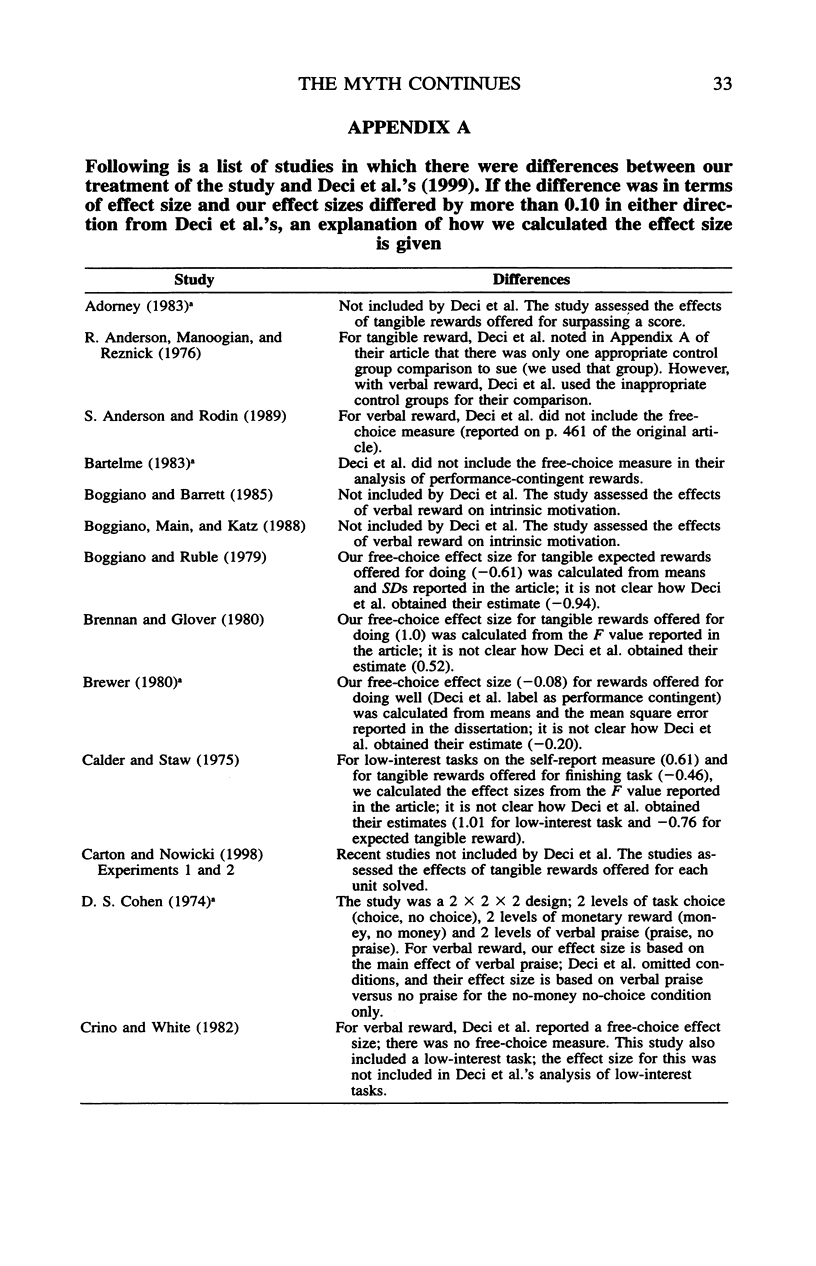
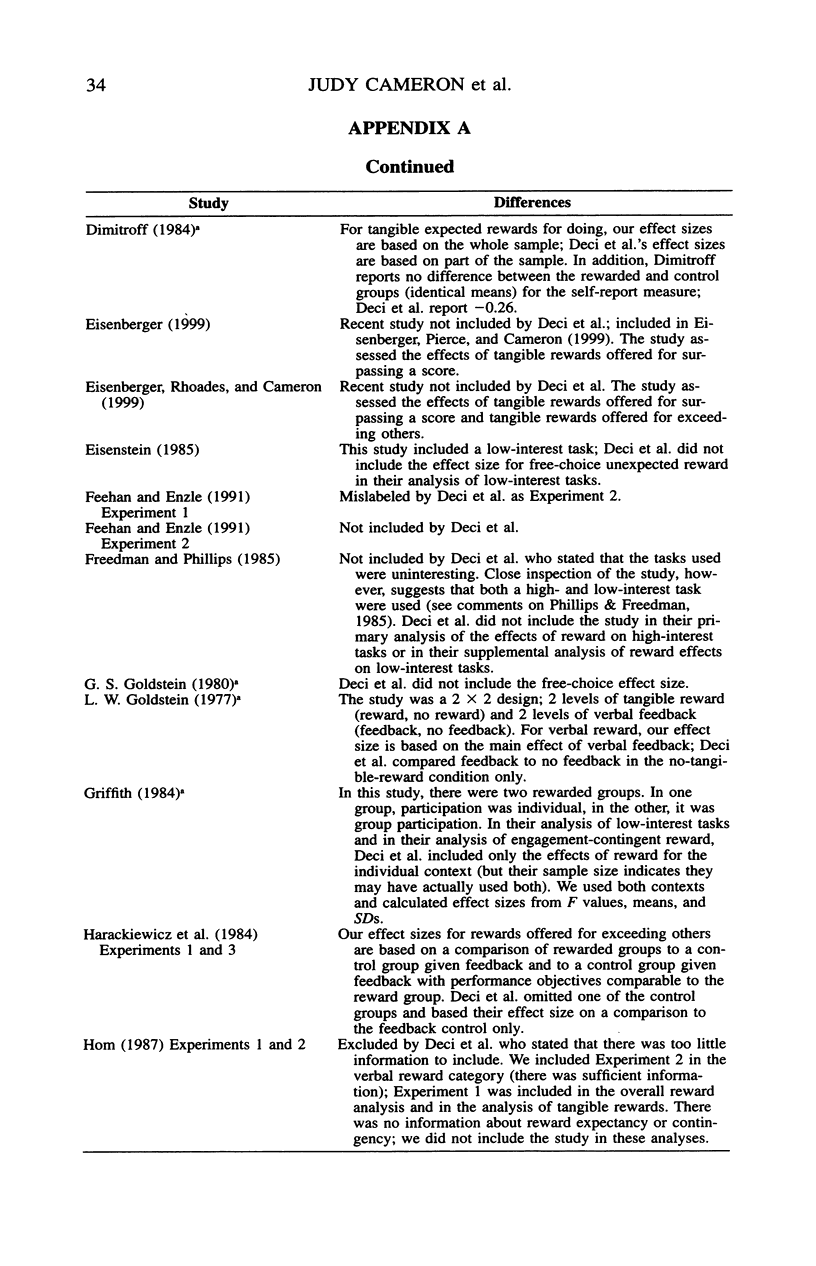
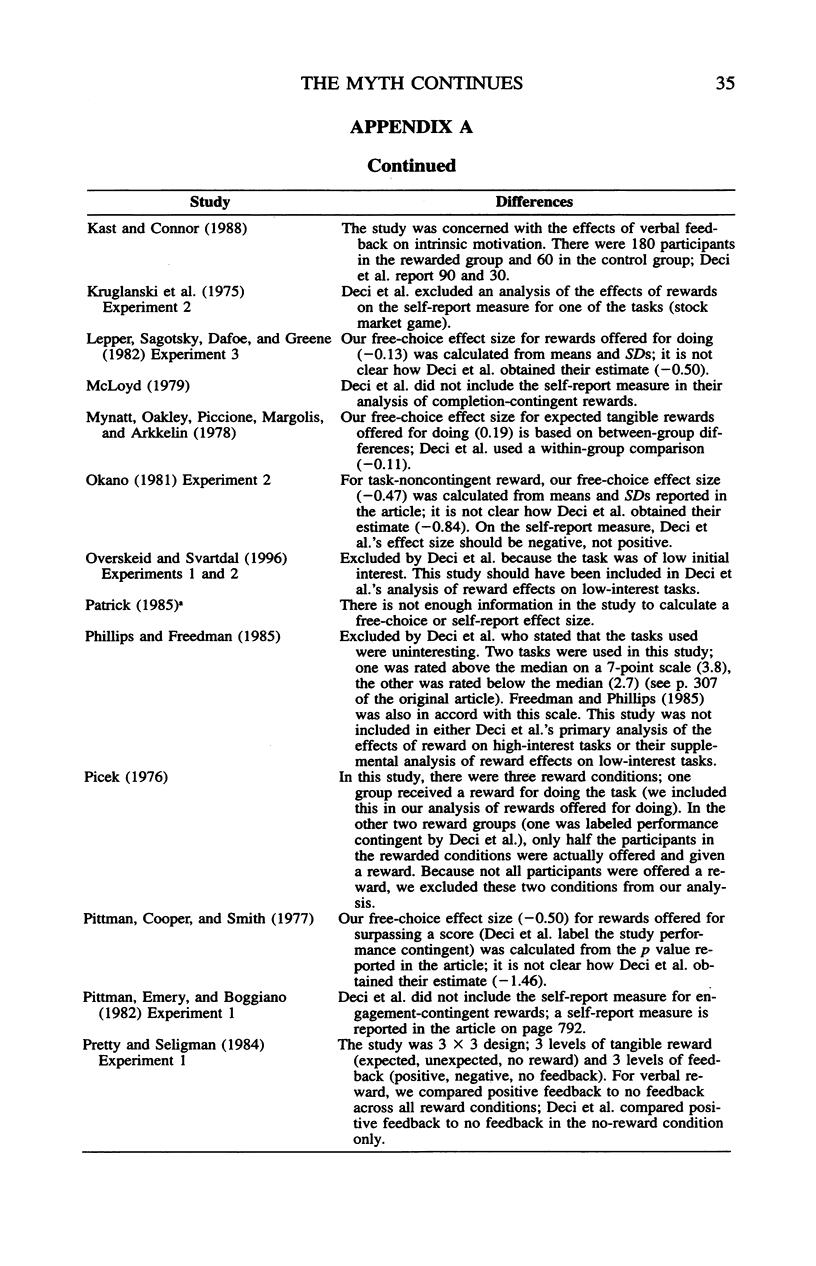
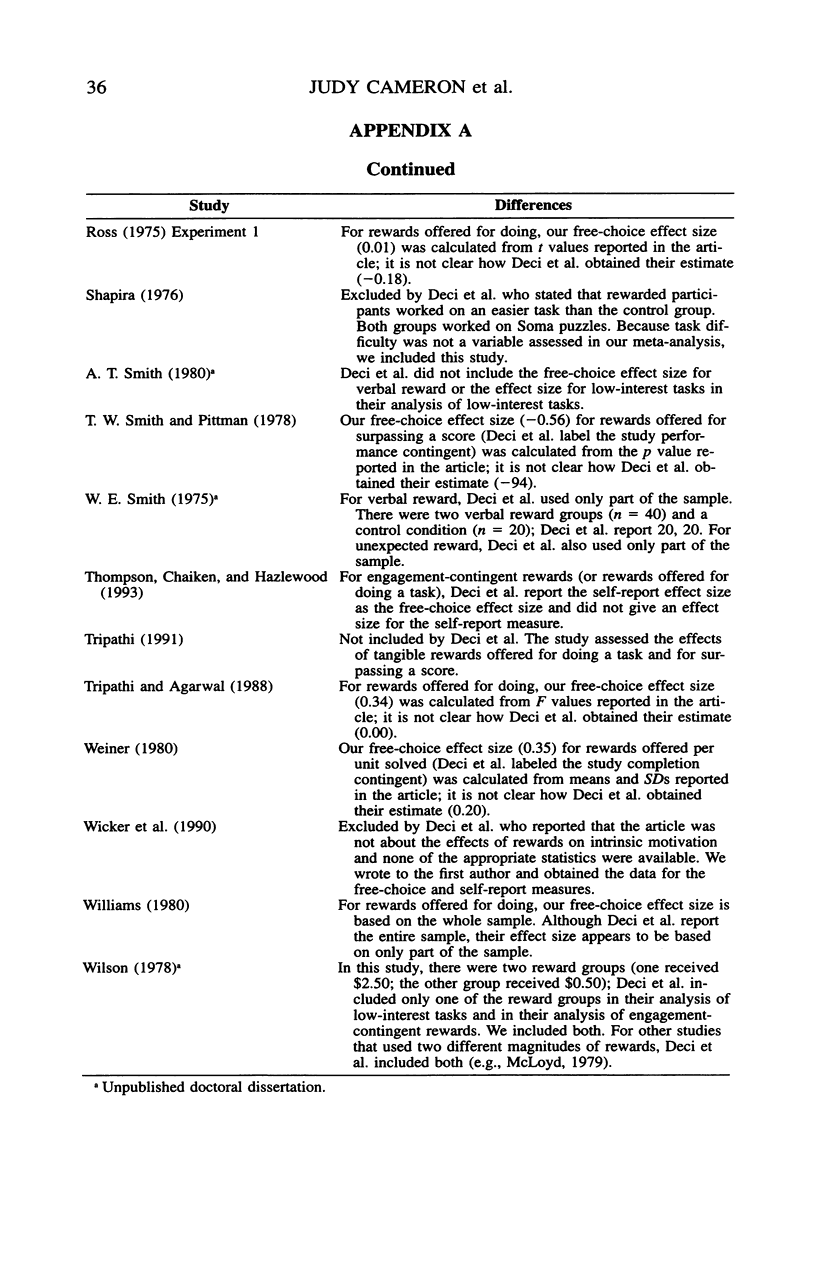
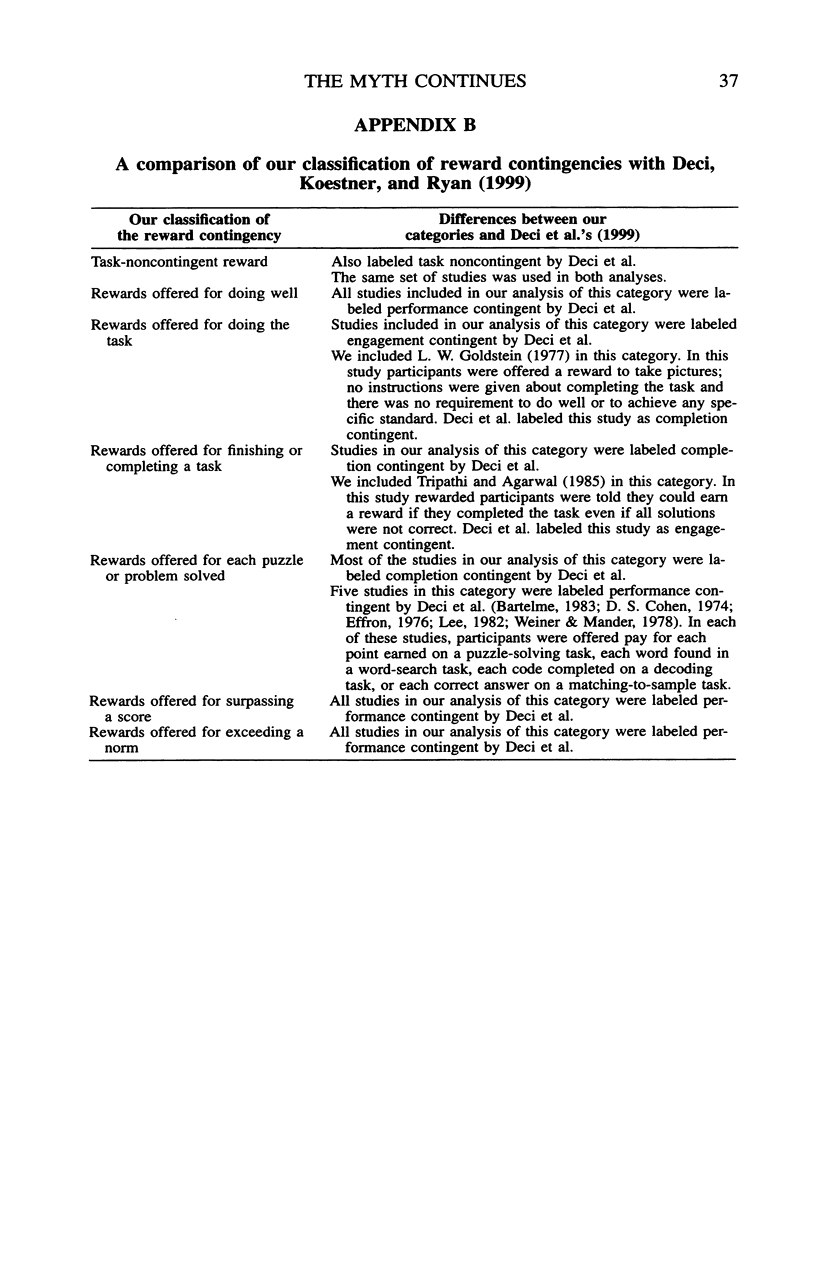
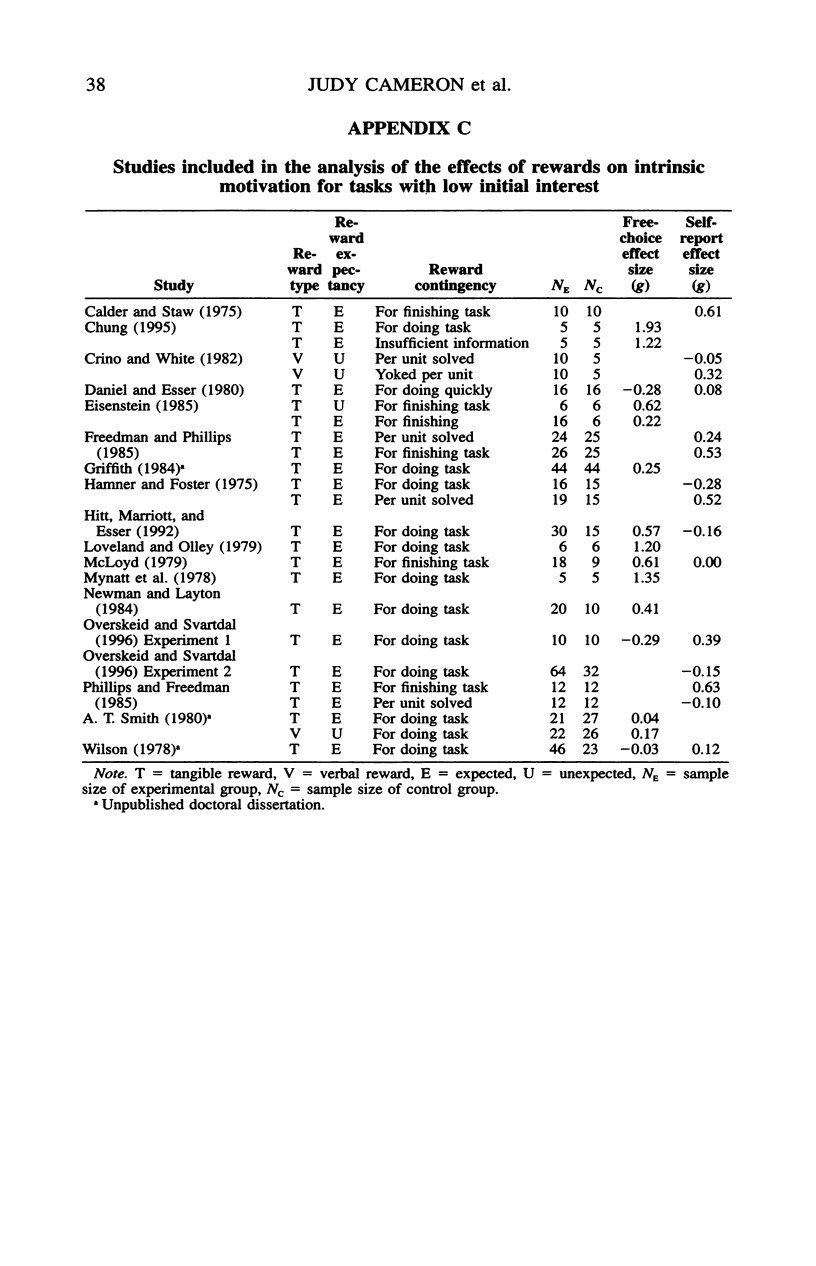
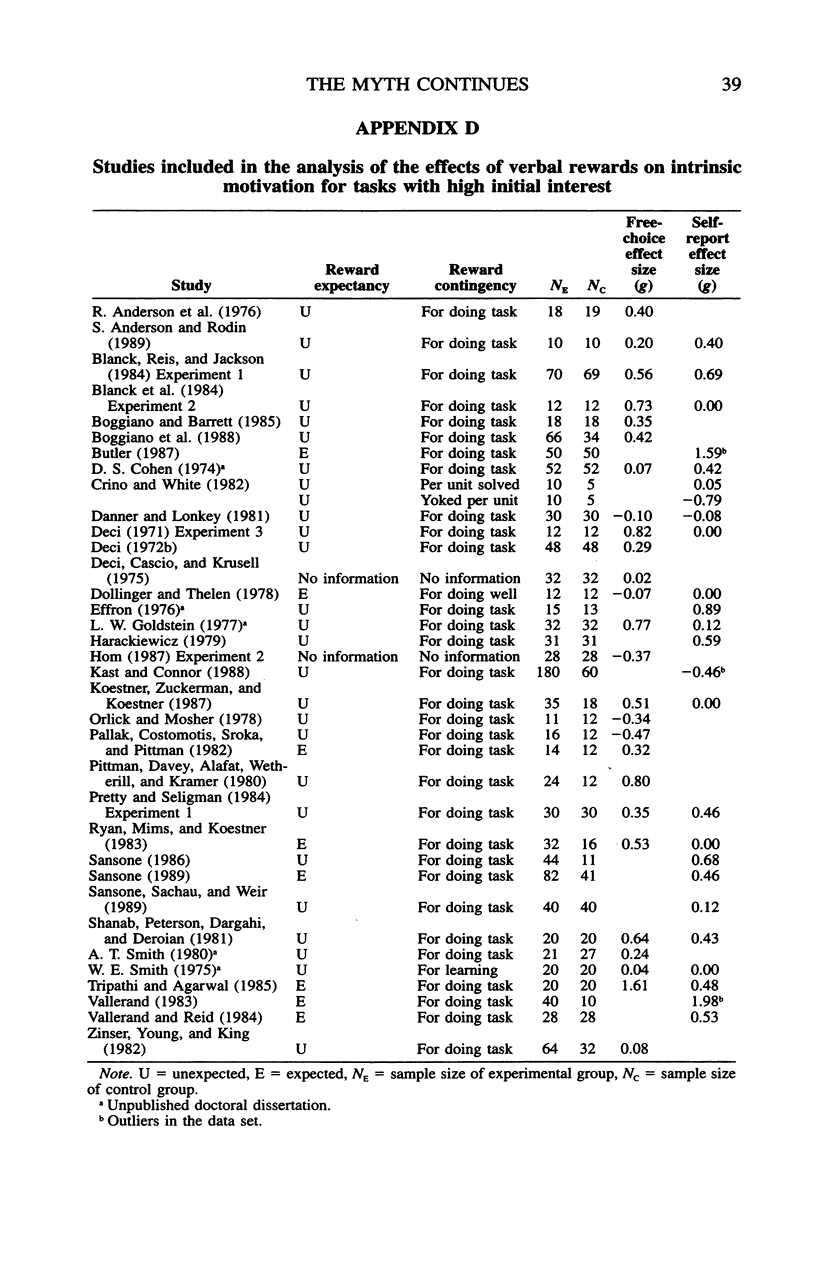
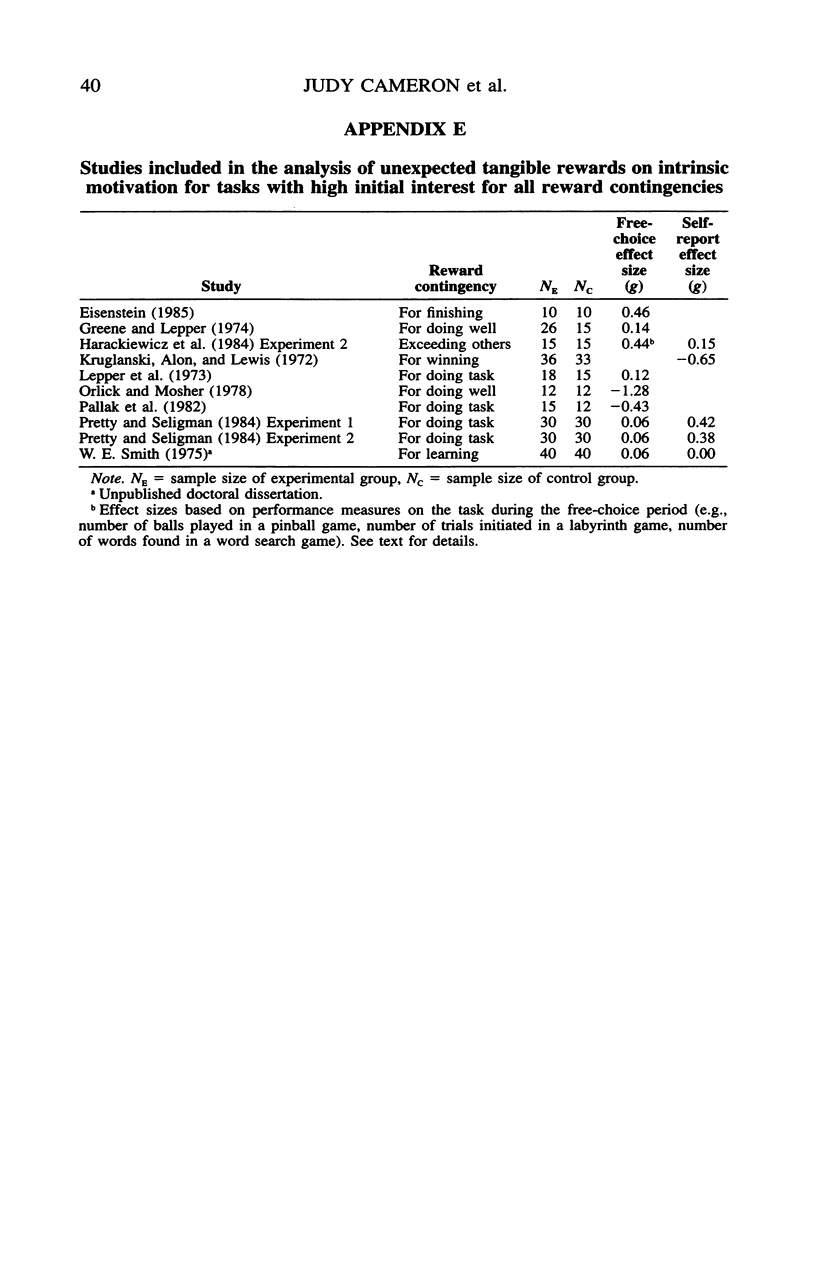
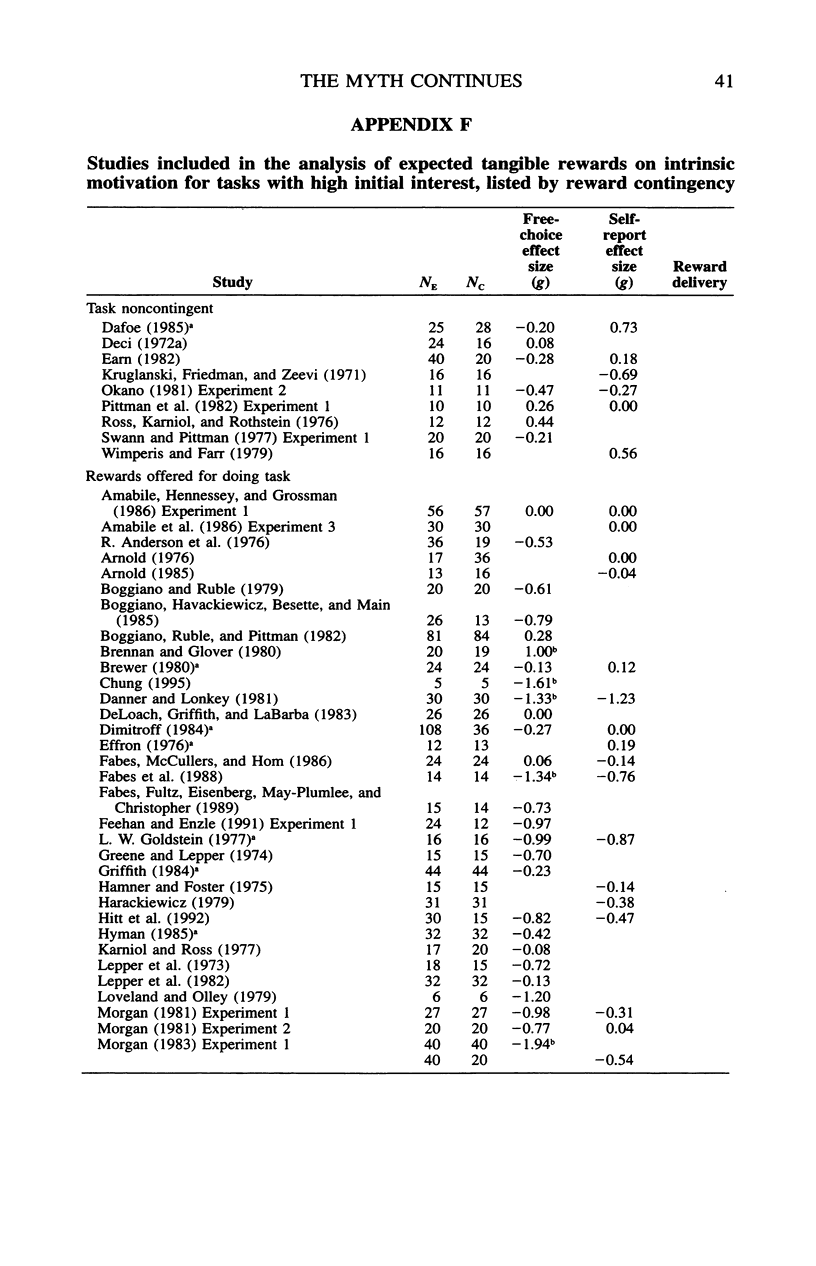
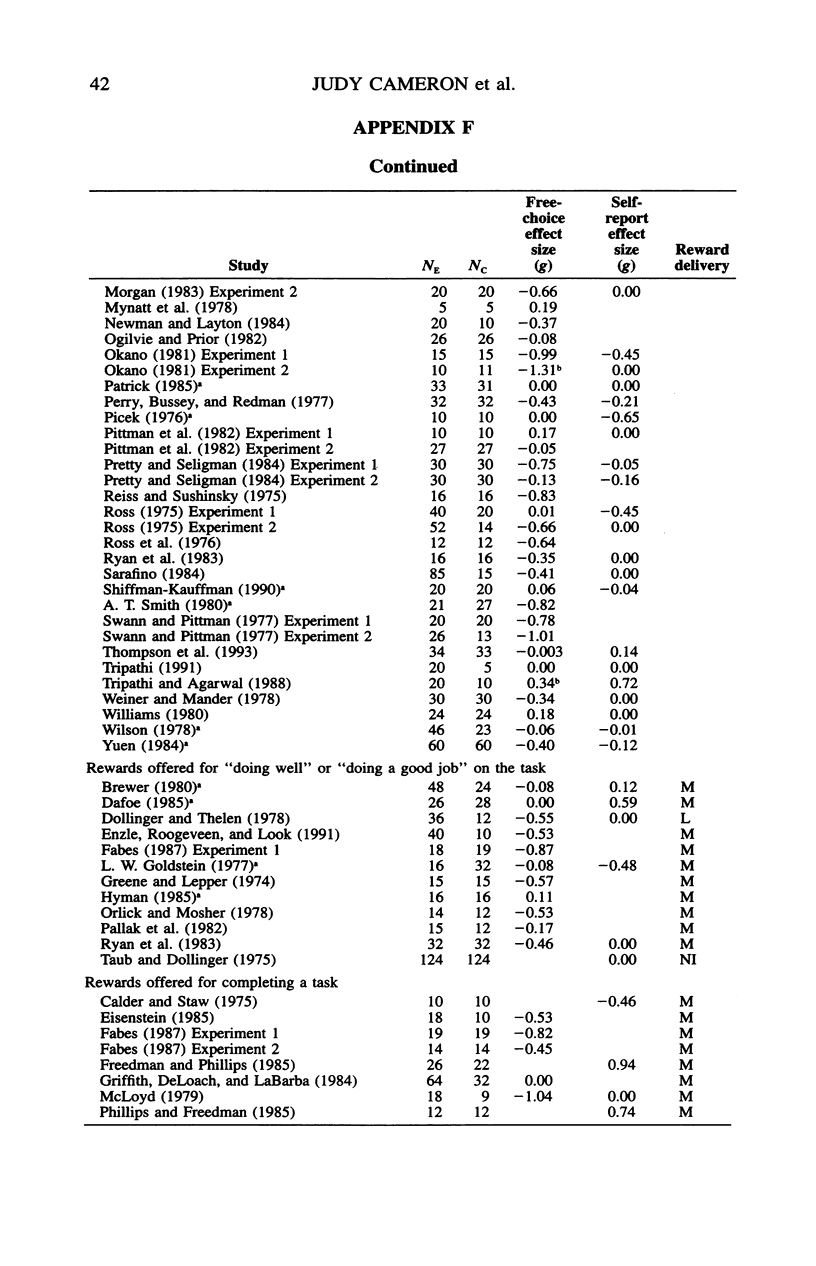
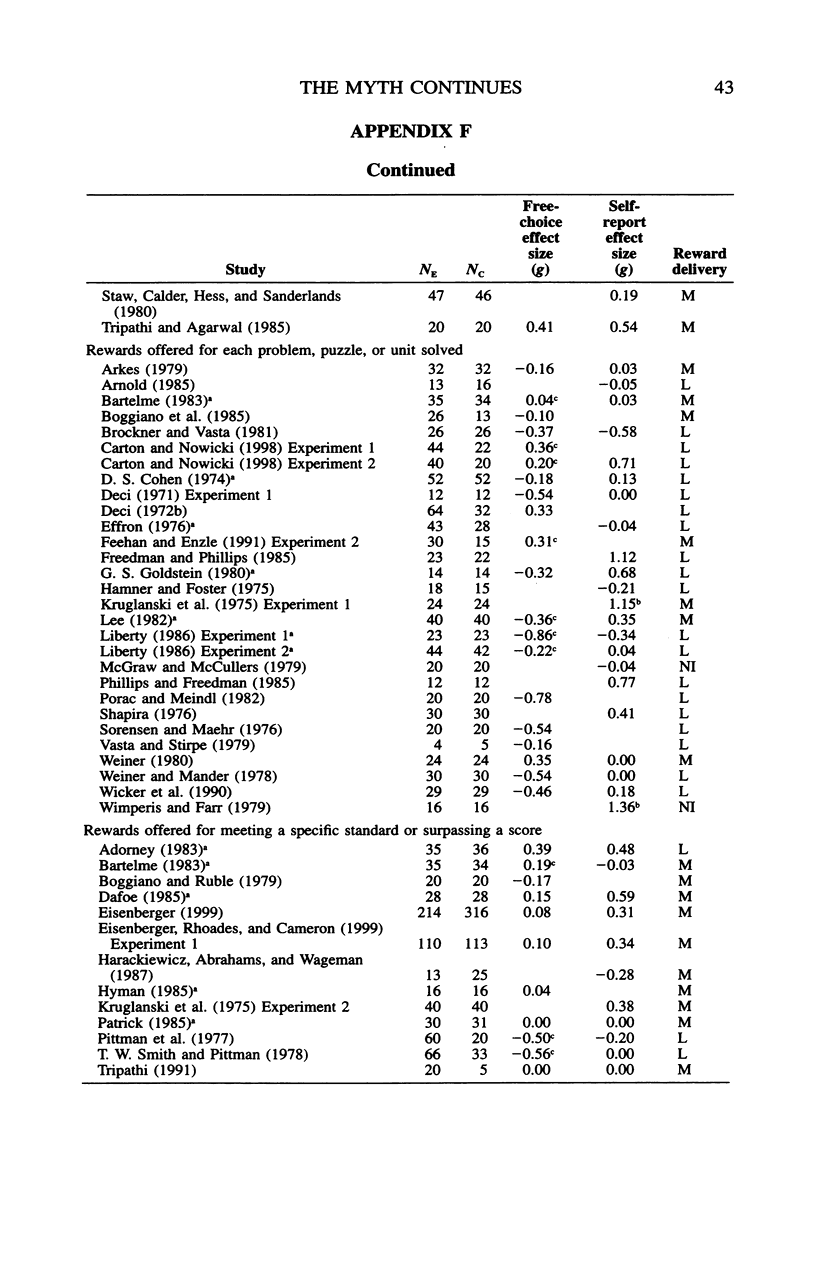
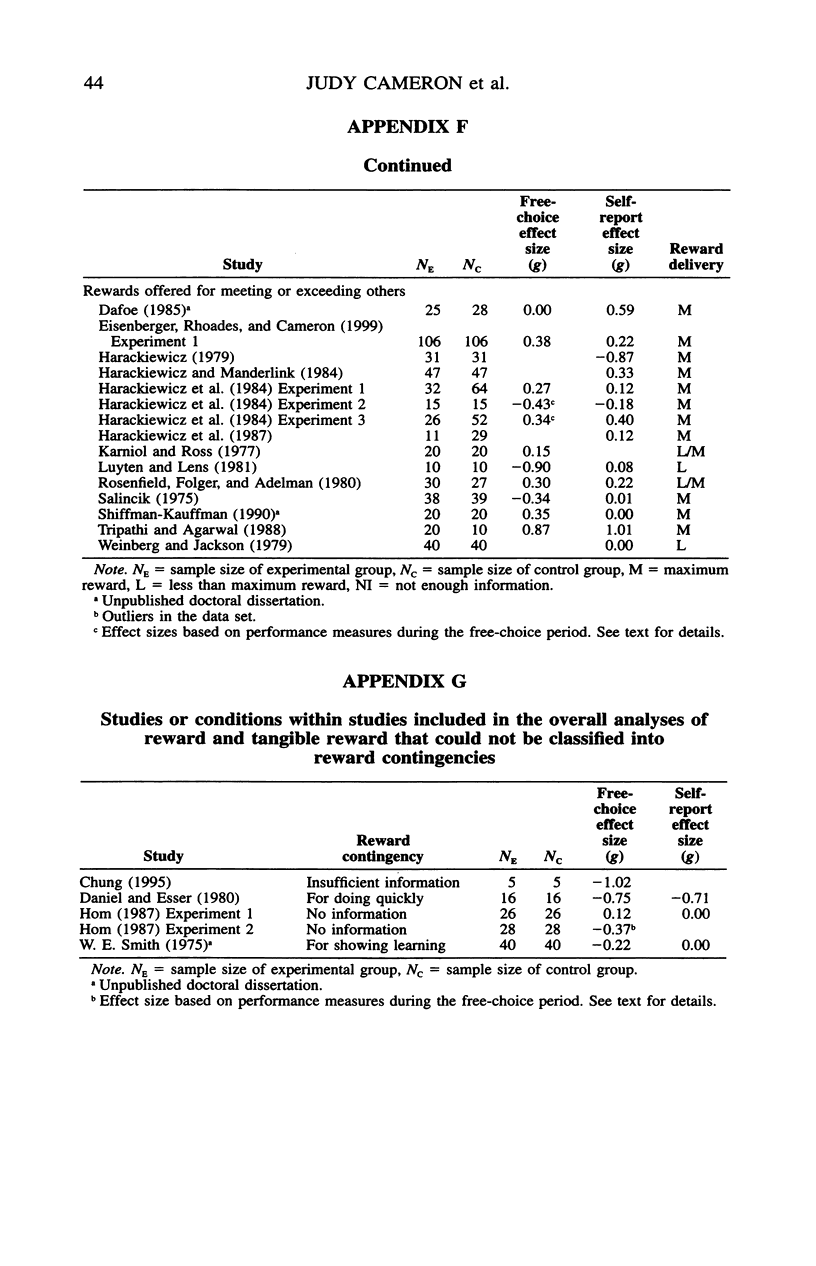
Selected References
These references are in PubMed. This may not be the complete list of references from this article.
- Amabile T. M., Hennessey B. A., Grossman B. S. Social influences on creativity: the effects of contracted-for reward. J Pers Soc Psychol. 1986 Jan;50(1):14–23. doi: 10.1037//0022-3514.50.1.14. [DOI] [PubMed] [Google Scholar]
- Baron A., Derenne A. Quantitative summaries of single-subject studies: What do group comparisons tell us about individual performances? Behav Anal. 2000 Spring;23(1):101–106. doi: 10.1007/BF03392004. [DOI] [PMC free article] [PubMed] [Google Scholar]
- Boggiano A. K., Barrett M. Performance and motivational deficits of helplessness: the role of motivational orientations. J Pers Soc Psychol. 1985 Dec;49(6):1753–1761. doi: 10.1037//0022-3514.49.6.1753. [DOI] [PubMed] [Google Scholar]
- Boggiano A. K., Main D. S., Katz P. A. Children's preference for challenge: the role of perceived competence and control. J Pers Soc Psychol. 1988 Jan;54(1):134–141. doi: 10.1037//0022-3514.54.1.134. [DOI] [PubMed] [Google Scholar]
- Calder B. J., Staw B. M. Self-perception of intrinsic and extrinsic motivation. J Pers Soc Psychol. 1975 Apr;31(4):599–605. doi: 10.1037/h0077100. [DOI] [PubMed] [Google Scholar]
- Carton J. S. The differential effects of tangible rewards and praise on intrinsic motivation: A comparison of cognitive evaluation theory and operant theory. Behav Anal. 1996 Fall;19(2):237–255. doi: 10.1007/BF03393167. [DOI] [PMC free article] [PubMed] [Google Scholar]
- Deci E. L., Koestner R., Ryan R. M. A meta-analytic review of experiments examining the effects of extrinsic rewards on intrinsic motivation. Psychol Bull. 1999 Nov;125(6):627–700. doi: 10.1037/0033-2909.125.6.627. [DOI] [PubMed] [Google Scholar]
- Derenne A., Baron A. Human sensitivity to reinforcement: A comment on Kollins, Newland, and Critchfield's (1997) quantitative literature review. Behav Anal. 1999 Spring;22(1):35–41. doi: 10.1007/BF03391976. [DOI] [PMC free article] [PubMed] [Google Scholar]
- Dickinson A. M. The detrimental effects of extrinsic reinforcement on "Intrinsic motivation". Behav Anal. 1989 Spring;12(1):1–15. doi: 10.1007/BF03392473. [DOI] [PMC free article] [PubMed] [Google Scholar]
- Eisenberger R., Cameron J. Detrimental effects of reward. Reality or myth? Am Psychol. 1996 Nov;51(11):1153–1166. doi: 10.1037//0003-066x.51.11.1153. [DOI] [PubMed] [Google Scholar]
- Eisenberger R. Learned industriousness. Psychol Rev. 1992 Apr;99(2):248–267. doi: 10.1037/0033-295x.99.2.248. [DOI] [PubMed] [Google Scholar]
- Eisenberger R., Pierce W. D., Cameron J. Effects of reward on intrinsic motivation--negative, neutral and positive: comment on Deci, Koestner, and Ryan (1999) Psychol Bull. 1999 Nov;125(6):677–700. doi: 10.1037/0033-2909.125.6.677. [DOI] [PubMed] [Google Scholar]
- Greene D., Lepper M. R. Effects of extrinsic rewards on children's subsequent intrinsic interest. Child Dev. 1974 Dec;45(4):1141–1145. [PubMed] [Google Scholar]
- doi: 10.1901/jeab.1990.54-323. [DOI] [PMC free article] [Google Scholar]
- Sansone C., Sachau D. A., Weir C. Effects of instruction on intrinsic interest: the importance of context. J Pers Soc Psychol. 1989 Nov;57(5):819–829. doi: 10.1037//0022-3514.57.5.819. [DOI] [PubMed] [Google Scholar]
- Taub S. I., Dollinger S. J. Reward and purpose as incentives for children differing in locus of control expectancies. J Pers. 1975 Jun;43(2):179–195. doi: 10.1111/j.1467-6494.1975.tb00701.x. [DOI] [PubMed] [Google Scholar]
- Thompson E. P., Chaiken S., Hazlewood J. D. Need for cognition and desire for control as moderators of extrinsic reward effects: a person x situation approach to the study of intrinsic motivation. J Pers Soc Psychol. 1993 Jun;64(6):987–999. doi: 10.1037//0022-3514.64.6.987. [DOI] [PubMed] [Google Scholar]
- Weinberg R. S., Jackson A. Competition and extrinsic rewards: effect on intrinsic motivation and attribution. Res Q. 1979 Oct;50(3):494–502. [PubMed] [Google Scholar]


